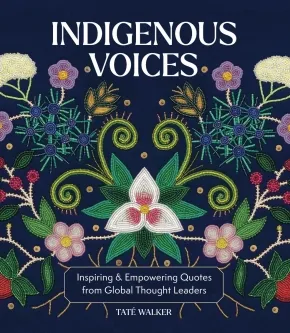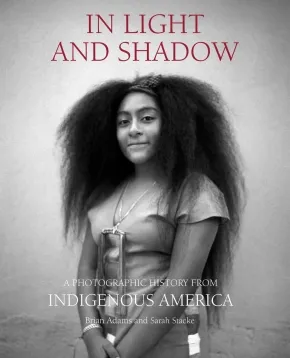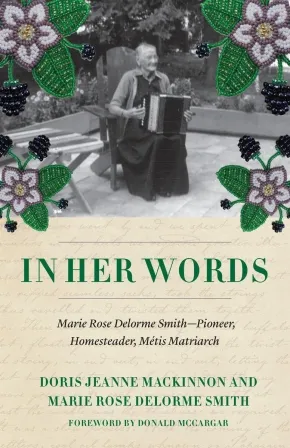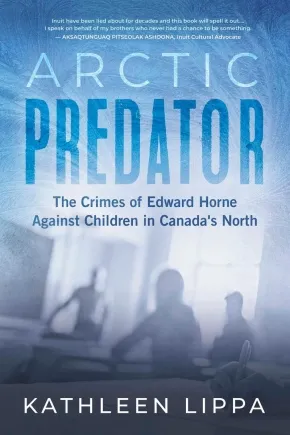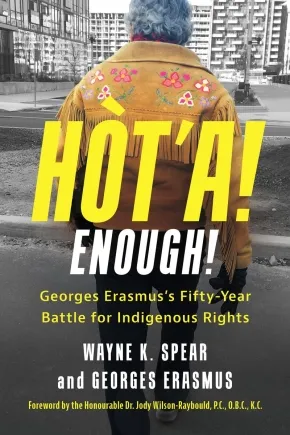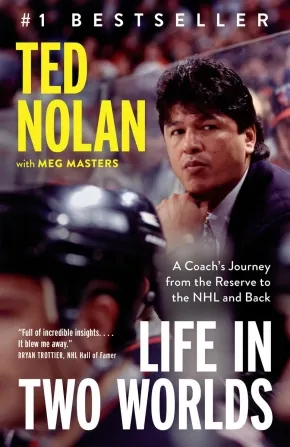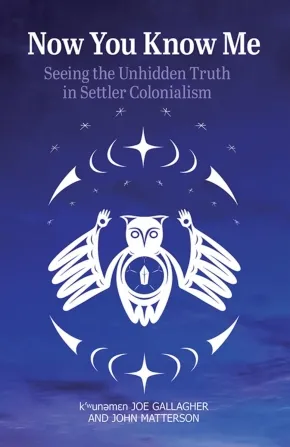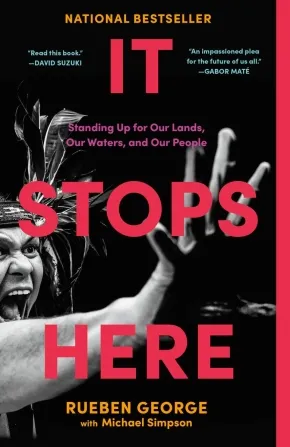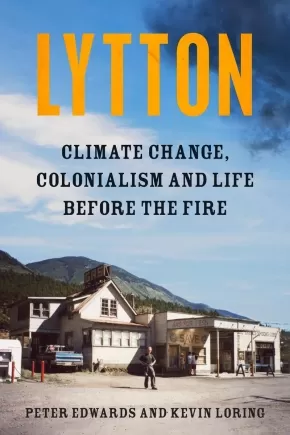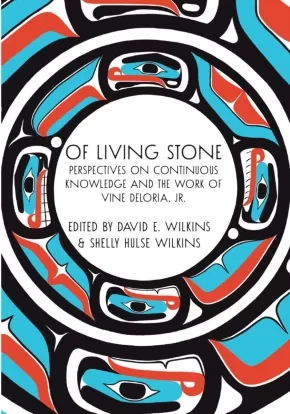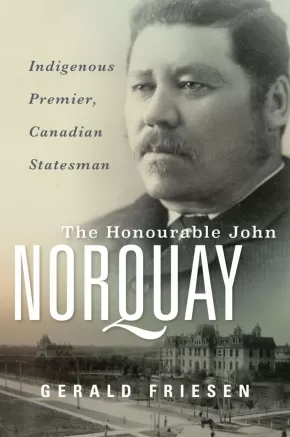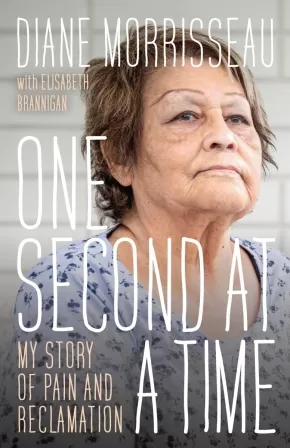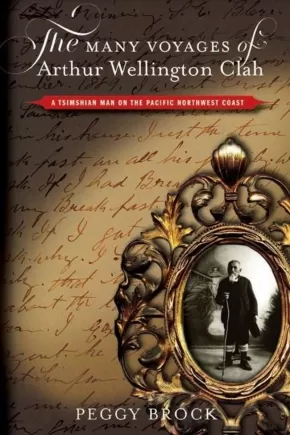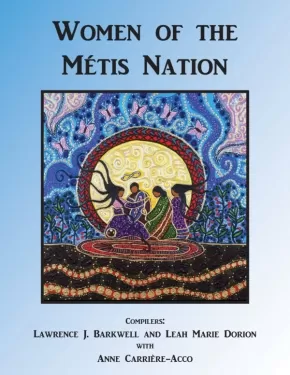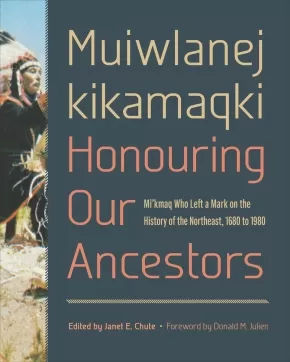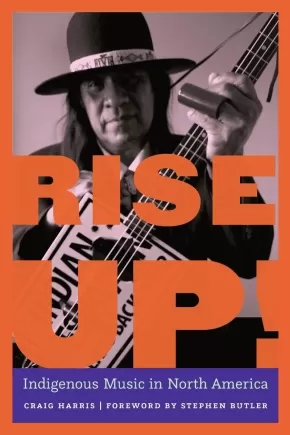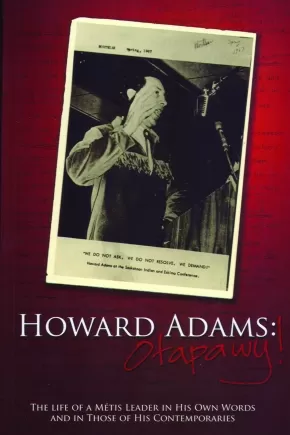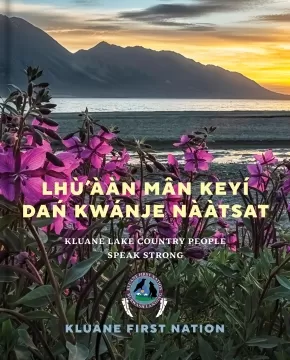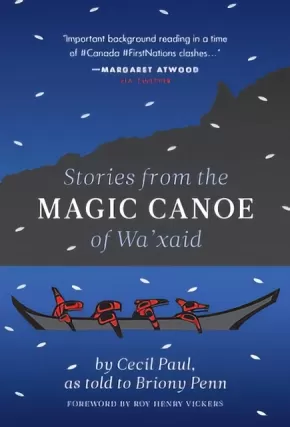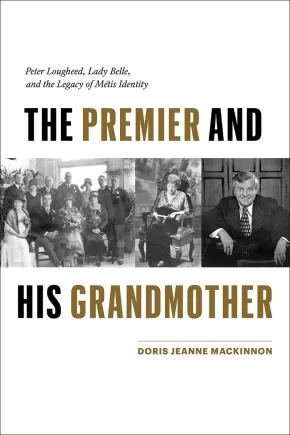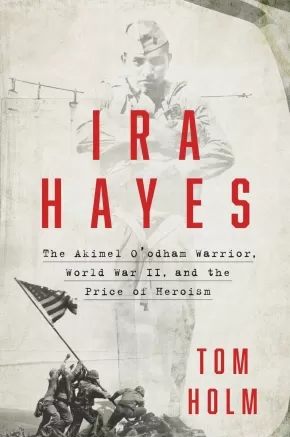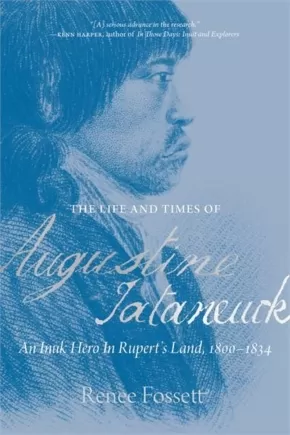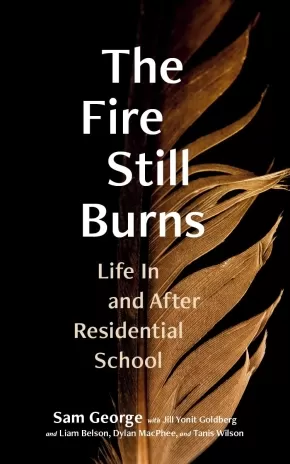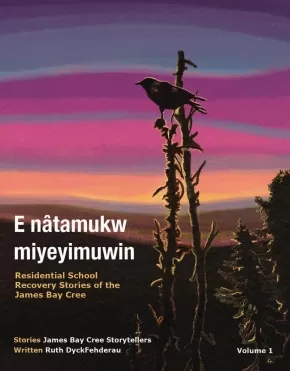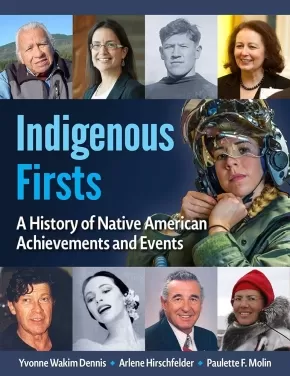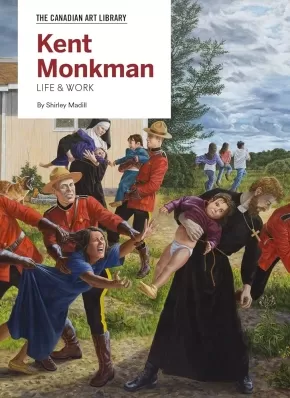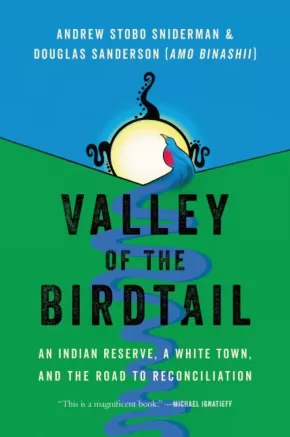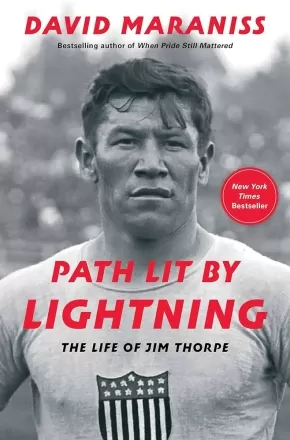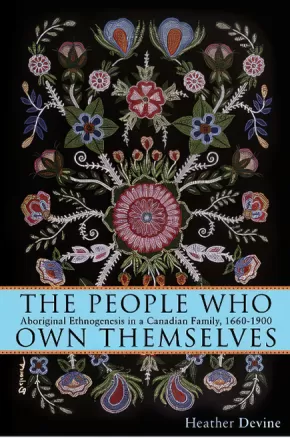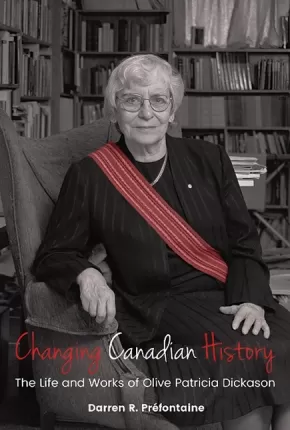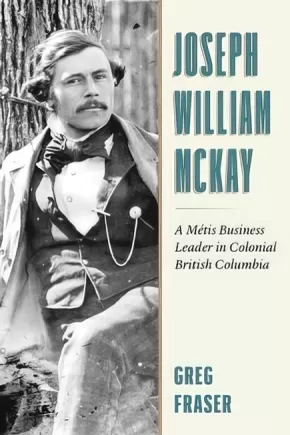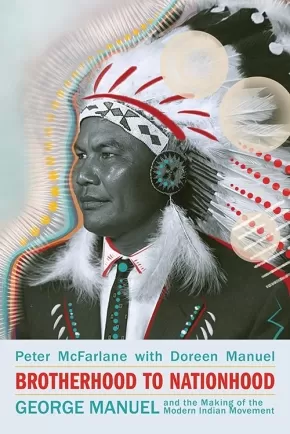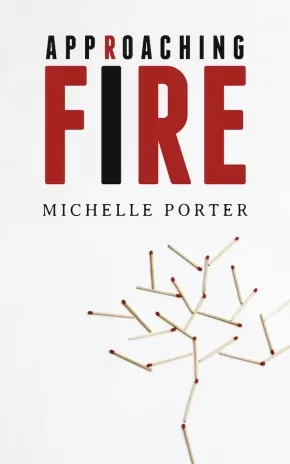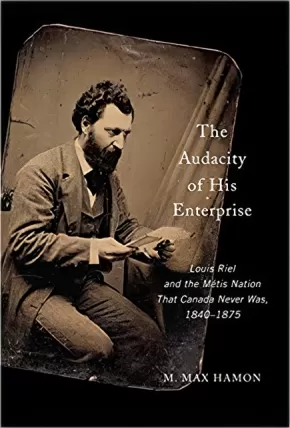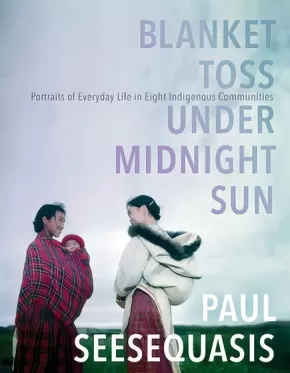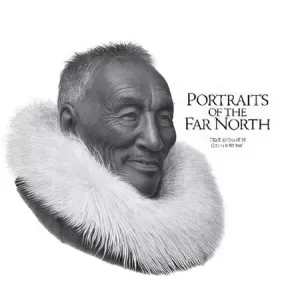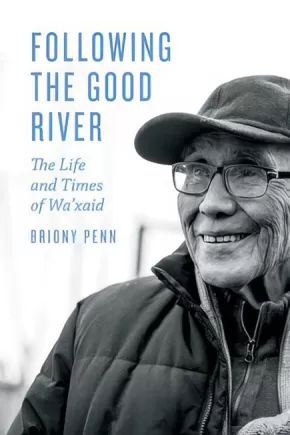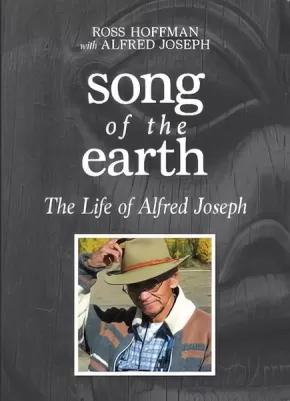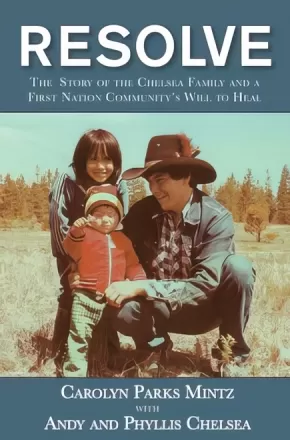
Biographies
1
-
15
of
76 Results;
Sort By
Go To
of 6
Indigenous Voices: Inspiring & Empowering Quotes from Global Thought Leaders
$25.99
Format:
Hardcover
Text Content Territories:
Indigenous Canadian; Indigenous American; Indigenous South American;
Reading Level: N/A
ISBN / Barcode: 9781577154914
Synopsis:
Synopsis:
Immerse yourself in Indigenous Voices, an inspiring volume of quotations by Indigenous thought leaders, activists, politicians, and scholars illustrated with stunning artwork by Indigenous artists.
This captivating book weaves together the timeless wisdom of Indigenous people from various nations and regions through a mosaic of more than 60 quotes, words, and stories by elders, leaders, activists, scholars, and influential contemporaries spanning all walks of life. Discover the diverse and unique heritage of extraordinary people like:
- Shina Novalinga – A member of the Inuk living in Montreal, Canada, Shina Novalinga is a content creator, singer, and activist who shares her Inuk culture across social media, of which an important aspect is traditional throat singing with her mother.
- Natali Segovia – A member of the Quechua, Natali Segovia is the Executive Director of the Water Protector Legal Collective and a human rights attorney. Her advocacy focuses on defending Water Protectors and human rights defenders facing repression for their activism.
- Corrina Gould – Of the Ohlone, Corrina Gould is the chair and spokesperson for the Confederated Villages of Lisjan, the Co-Director for the Sogorea Te' Land Trust, and the lead organizer for Indian People Organizing for Change.
- Elias Not Afraid – A member of the Apsáalooke (Crow), Elias Not Afraid is a mega-award-winning queer beader and fashion designer. He says, “When people think of native beadwork, they think trinkets and good luck charms and dream catchers but it’s far from it. I create wearable art that is durable and can be used daily and last over a lifetime and be used as a family heirloom.”
- Lily Gladstone – An American actress from the Blackfeet Reservation, Gladstone is of Piegan Blackfeet, Nez Perce, and European heritage. They earned critical acclaim for portraying Mollie Kyle, an Osage woman who survived the Osage Indian murders in Martin Scorsese’s film Killers of the Flower Moon, among other important roles in film and television.
- Kola Shippentower – A member of the Umatilla, Shippentower is the first Native American player for the Oregon Ravens, a tackle football team for women and non-binary players.
- Shiloh Maples – Of the Odawa, Maples is a citizen of the Little River Band of Indians based in Michigan. Through her interest in Indigenous food systems and her own Ojibwe and Odawa heritage, she developed the program Sacred Roots for the American Indian Health and Family Services in Detroit, where she taught cooking classes and promoted dishes using traditional, seasonal, and local ingredients in a way that improved participants’ health while connecting them with their culture.
- Alvera Sargent – Sargent, of the Akwesasne Mohawk, worked with the Akwesasne Freedom School, one of the oldest Indigenous language schools in North America. “My hope for our tribal community at large is that more of our people come back to our traditional space. I am grateful that our time has come as Indigenous people are being recognized for their traditional knowledge systems. The community is recognizing that Indigenous people do have the wisdom of our ancestors to share, which helps all areas of our society.”
- And more!
Indigenous Voices offers a unique opportunity to connect with ancient traditions, refresh your perspective with modern insight, and gain awareness and understanding that resonate across cultures and generations.
Additional Information
192 pages | 7.5" x 8.6" | Hardcover
Gino: The Fighting Spirit of Gino Odjick
$36.00
Format:
Hardcover
Text Content Territories:
Indigenous Canadian; First Nations; Anishinaabeg; Algonquin; Kitigan Zibi Anishinabeg;
Reading Level: N/A
ISBN / Barcode: 9781778402708
Synopsis:
Synopsis:
From veteran hockey reporter Patrick Johnston and Gino’s longtime friend Peter Leech comes the authorized biography of Gino Odjick.
In the 1980s and ’90s, National Hockey League games were very different from the nimble, skill-focused displays we see today. One of the greatest differences—and one of the sport’s more popular facets at the time—was the widespread presence of “enforcers”: hulking, battle-scarred players whose main task was to police the sport by chasing down and brawling with opponents who had broken unwritten codes determining which aspects of violence counted as dishonorable or unjustified.
When hard-hitting Vancouver Canucks player Gino Odjick emerged in the early 1990s, he quickly became one of the game’s most feared enforcers and revered teammates, a sign of a new era for the team, racking up 296 penalty minutes in the 45 games he played in his rookie season. Hailing from Kitigan Zibi, an Algonquin community near Maniwaki, Quebec, Gino was one of the few Indigenous players in the NHL at the time. But it was Gino’s ferocious play contrasted by his genuinely affable and openhearted personality off the ice that won him a special place in the hearts of Canucks supporters.
Yet legends often obscure the human stories behind them. Patrick Johnston and Peter Leech look beyond Gino’s legendary persona, drawing on insights from family members, friends, and teammates to recount Gino’s early years in a loving household that was always ready to welcome foster children. Gino’s father, Joe, had suffered the lonely traumas of the residential school system, and the experience had instilled a commitment in the family to those who were less fortunate.
The book also details Gino’s eventual struggles with alcohol abuse, and how he responded by taking on the role of empathetic mentor to young Indigenous people, travelling from community to community to hear their stories and offer hope. He never wavered in this role, even as he confronted serious illnesses, including chronic traumatic encephalopathy (CTE) and the rare blood disorder that he survived for years longer than expected, but that eventually led to his death at age fifty-two.
Gino is a moving tribute to a beloved hockey legend.
Reviews
"Gino was the greatest teammate; he had such a huge heart and knew his role better than anyone in the league. Gino loved being a Vancouver Canuck and gave back to the community in so many ways. He will be greatly missed by his family, friends, and fans. This book will give people insight into his remarkable life."—Geoff Courtnall
“Gino provides a compelling account of the life of a beloved Vancouver Canuck. From his humble beginnings in Quebec to NHL stardom and beyond, Odjick was dedicated to the well-being of teammates and the Indigenous community. This is an excellent tribute to an exceptional man.”—Randi Druzin, author of Between the Pipes and Behind the Mask
Additional Information
288 pages | 6.00" x 9.00" | b&w insert | Hardcover
In Light and Shadow: A Photographic History from Indigenous America
$51.00
Artists:
Format:
Hardcover
Text Content Territories:
Indigenous Canadian; Indigenous American; Indigenous Polynesian; Indigenous Hawaiian;
Reading Level: N/A
ISBN / Barcode: 9780762482467
Synopsis:
Synopsis:
A landmark photography collection featuring work exclusively by Indigenous Americans, shedding new light on the understanding of Indigenous America.
The history of photography–and the Americas–is incomplete without the critical work and perspectives of Indigenous American photographers. Since the 1800s, cameras have been in the hands of Indigenous people and they have incorporated photography into their lives as creators, patrons, and collectors.
Five years ago, photographers Brian Adams and Sarah Stacke set off on a mission to assemble a groundbreaking, digital library of Indigenous photographers from the 19th century to the present. With In Light and Shadow: A Photographic History from Indigenous America, Adams and Stacke expand on that work, creating a one-of-a-kind collection of photographs that offers a first-hand look at the people, cultures, and evolving traditions of Indigenous America while providing a counterhistory to settler-colonial narratives.
From Jennie Fields Ross Cobb, the earliest known Indigenous American woman photographer, to Arhuaco documentarian Amado Villafaña Chaparro, through Kapuleiikealoonalani Flores, a Native Hawaiian who was born in 2000, the photographers span many generations as well as multiple Indigenous societies and nations. Each entry includes a biographical sketch of the artist, along with their inspirations and contributions to the photographic medium.
With profiles of 80 photographers and more than 250 photographs, this unique book brings to light the canon of Indigenous American photography that has been developing on its own terms for decades.
Additional Information
304 pages | 8.50" x 10.30" | 250 black-and-white and color photographs | Hardcover
In Her Words: Marie Rose Delorme Smith—Pioneer, Homesteader, Métis Matriarch
$29.95
Format:
Paperback
Text Content Territories:
Indigenous Canadian; Métis;
Reading Level: N/A
ISBN / Barcode: 9781772035209
Synopsis:
Synopsis:
Part historical biography, part compilation of the written works of Mary Rose Delorme Smith (1861–1960), a prolific and accomplished Métis woman.
Born into a prominent fur-trading family and remembered as a community builder and rancher, Marie Rose Delorme Smith (1861–1960) is seldom recognized as a writer and chronicler of Métis and Prairie history. Fluent in French, English, and likely Michif, Delorme Smith recorded a wealth of written records and stories throughout her long life, in the form of letters, published articles, unpublished manuscripts, and personal documents.
Donated to public archives following her death, these written works garnered some interest among scholars and biographers over the years, as prominent Indigenous women gradually found a place in the histories they had been left out of for generations. Delorme Smith became the subject of biographies and scholarly research, and she was finally recognized as a “National Historic Person” by the Canadian government in 2022. However, the recognition bestowed upon her rarely highlighted her own words, which reveal so much about her life, Métis history, and Prairie life in the late nineteenth and early twentieth centuries.
For the first time, historian and biographer Doris Jeanne MacKinnon presents an extensive array of Delorme Smith’s writings, preserved verbatim, and puts them in historical and social context. This fascinating collection of documents from a bygone era reveals the strength, intellect, and leadership of a fascinating Métis martriarch.
Additional Information
276 pages | 5.50" x 8.50" | b&w photographs | Paperback
Arctic Predator: The Crimes of Edward Horne Against Children in Canada's North
$26.99
Format:
Paperback
Text Content Territories:
Indigenous Canadian; Inuit;
Reading Level: N/A
ISBN / Barcode: 9781459754805
Synopsis:
Synopsis:
The shocking crimes of a trusted teacher wrought lasting damage on Inuit communities in Canada's Arctic.
In the 1970s, a young schoolteacher from British Columbia was becoming the darling of the Northwest Territories education department with his dynamic teaching style. He was learning to speak the local language, Inuktitut, something few outsiders did. He also claimed to be Indigenous - a claim that would later prove to be false. In truth, Edward Horne was a pedophile who sexually abused his male students.
From 1971 to 1985 his predations on Inuit boys would disrupt life in the communities where he worked - towns of close-knit families that would suffer the intergenerational trauma created by his abuse.
Journalist Kathleen Lippa, after years of research, examines the devastating impact the crimes had on individuals, families, and entire communities. Her compelling work lifts the veil of silence surrounding the Horne story once and for all.
Additional Information
280 pages | 6.00" x 9.00" | Paperback
Hòt'a! Enough!: Georges Erasmus's Fifty-Year Battle for Indigenous Rights
$28.99
Format:
Paperback
Text Content Territories:
Indigenous Canadian; First Nations; Dene;
Reading Level: N/A
ISBN / Barcode: 9781459752900
Synopsis:
Synopsis:
The political life of Dene leader Georges Erasmus - a radical Native rights crusader widely regarded as one of the most important Indigenous leaders of the past fifty years.
For decades, Georges Erasmus led the fight for Indigenous rights. From the Berger Inquiry to the Canadian constitutional talks to the Oka Crisis, Georges was a significant figure in Canada's political landscape. In the 1990s, he led the Royal Commission on Aboriginal Peoples and afterward was chair and president of the Aboriginal Healing Foundation, around the time that Canada's residential school system became an ongoing frontpage story.
Georges's five-decade battle for Indigenous rights took him around the world and saw him sitting across the table from prime ministers and premiers. In the 1980s, when Georges was the National Chief of the Assembly of First Nations, he was referred to as the "Thirteenth Premier." This book tells the personal story of his life as a leading Indigenous figure, taking the reader inside some of Canada's biggest crises and challenges.
Awards
- 2025 Indigenous Voices Awards - Prose in English Award
Additional Information
320 pages | 6.00" x 9.00" | 57 b&w illustrations | Paperback
Life in Two Worlds: A Coach's Journey from the Reserve to the NHL and Back (PB)
$23.00
Format:
Paperback
Text Content Territories:
Indigenous Canadian; First Nations; Anishinaabeg; Ojibway; Ketegaunseebee (Garden River First Nation);
Reading Level: N/A
ISBN / Barcode: 9780735244979
Synopsis:
Synopsis:
In 1997 Ted Nolan won the Jack Adams Award for best coach in the NHL. But he wouldn’t work in pro hockey again for almost a decade. What happened?
Growing up on a First Nation reserve, young Ted Nolan built his own backyard hockey rink and wore skates many sizes too big. But poverty wasn’t his biggest challenge. Playing the game meant spending his life in two worlds: one in which he was loved and accepted and one where he was often told he didn’t belong.
Ted proved he had what it took, joining the Detroit Red Wings in 1978. But when his on-ice career ended, he discovered his true passion wasn’t playing; it was coaching. First with the Soo Greyhounds and then with the Buffalo Sabres, Ted produced astonishing results. After his initial year as head coach with the Sabres, the club was being called the “hardest working team in professional sports.” By his second, they had won their first Northeast Division title in sixteen years.
Yet, the Sabres failed to re-sign their much-loved, award-winning coach.
Life in Two Worlds chronicles those controversial years in Buffalo—and recounts how being shut out from the NHL left Ted frustrated, angry, and so vulnerable he almost destroyed his own life. It also tells of Ted’s inspiring recovery and his eventual return to a job he loved. But Life in Two Worlds is more than a story of succeeding against the odds. It’s an exploration of how a beloved sport can harbour subtle but devastating racism, of how a person can find purpose when opportunity and choice are stripped away, and of how focusing on what really matters can bring two worlds together.
Reviews
"Full of incredible insights into a tough life that Teddy’s perseverance turned into inspiration. It blew me away.”—Bryan Trottier, NHL Hall of Famer
“Ted’s beautiful memoir follows a trail of losses and the pain of getting well, and his stunning successes, lifting trophies, lifting lives. Ted was able to reach so many things, but his truth went beyond these things, and it’s the story of how he went beyond, to keep what was true in front of him that makes this book so enjoyable, and so important.”—Ron MacLean, CBC sportscaster and host of Hockey Night in Canada
“Ted Nolan’s story is truly remarkable. Ted persevered and overcame significant obstacles at a time when Indigenous people were not encouraged, applauded, or even wanted in elite hockey leagues. Ted broke barriers, battled racism, worked hard, and not only became an NHL player but also an elite junior, NHL, and international coach. Ted paved the way for many Indigenous youth to not only participate, but succeed in hockey arenas across North America and Europe as coaches and players.”—Phil Fontaine, former National Chief of the Assembly of First Nations
“Playing for Ted Nolan is one of my fondest memories. People called us “The Hardest Working Team in Hockey” and that doesn’t happen without a coach who can show each player their purpose and prove his belief in them. We all played beyond our own abilities for Ted. We led the NHL in penalty minutes and no team wanted to play us in our building. I respect Ted as a coach both on and off the ice, and this book gives a hint of why he inspires that in players and in people in general.”—Rob Ray, broadcaster and former NHLer
“Teddy was my favourite coach, mentor and friend. I love Ted Nolan. This book gives a good sense of what makes him so special.”—Brad May, former NHLer, Stanley Cup winner, and AT&T SportsNet analyst
“My father was so proud of Ted; he understood what he was going through. A story of perseverance, Life in Two Worlds is a great read for any generation."—Neil Sasakamoose, son of Fred Sasakamoose, the NHL’s first Treaty Indigenous player and bestselling author of Call Me Indian
Additional Information
336 pages | 5.11" x 7.97" | 8-page colour insert | Paperback
Now You Know Me: Seeing the Unhidden Truth in Settler Colonialism
$24.95
Format:
Paperback
Text Content Territories:
Indigenous Canadian; First Nations; Salish; Coast Salish; Tla'amin (Sliammon);
ISBN / Barcode: 9780888397829
Synopsis:
Synopsis:
Now You Know Me tells of a journey of understanding between two old friends who grew up in different worlds in the same small town of Powell River, BC, on traditional Tla’amin land. Joe Gallagher, who is Tla’amin, and John Matterson, who is white, were friends as teenagers but went their separate ways before reconnecting 35 years later and truly getting to know each other.
As John began to listen more deeply to Joe’s history, they journeyed together through the historic events and attitudes that deeply wounded the Tla’amin and their way of life. With each conversation, John’s understanding of Joe’s life and recognition of his own unearned advantages and blind participation in racism became clearer.
In their illuminating dialogue in Now You Know Me, we learn what it took for Joe to straddle two worlds while battling racism, a traumatic childhood, and his father’s warning that he couldn’t succeed in a white world without working twice as hard. Despite ongoing suffering from multigenerational harms, Joe garnered broad respect on his way to becoming CEO of a groundbreaking Indigenous-led health organization, bringing hope and a collaborative spirit to a revolution in health and wellness for BC First Nations.
Today, John is committed to ongoing learning and allyship, while Joe is called on by First Nations leaders as well as senior leaders in health and government as an able navigator of the movement toward Truth and Reconciliation.
Additional Information
304 pages | 5.50" x 8.50" | Paperback
It Stops Here: Standing Up for Our Lands, Our Waters, and Our People (PB)
$24.00
Format:
Paperback
Text Content Territories:
Indigenous Canadian; First Nations; Salish; Coast Salish; Tsleil-Waututh;
ISBN / Barcode: 9780735242821
Synopsis:
Synopsis:
A personal account of one man’s confrontation with colonization that illuminates the philosophy and values of a First Nation on the front lines of the fight against an extractive industry, colonial government, and threats to the life-giving Salish Sea.
It Stops Here is the profound story of the spiritual, cultural, and political resurgence of a nation taking action to reclaim their lands, waters, law, and food systems in the face of colonization. In deeply moving testimony, it recounts the intergenerational struggle of the Tsleil-Waututh Nation to overcome colonial harms and the powerful stance they have taken alongside allies and other Indigenous nations across Turtle Island against the development of the Trans Mountain Pipeline—a fossil fuel megaproject on their unceded territories.
In a firsthand account of the resurgence told by Rueben George, one of the most prominent leaders of the widespread opposition to the Trans Mountain Pipeline expansion, It Stops Here reveals extraordinary insights and revelations from someone who has devoted more than a decade of his life to fighting the project. Rueben shares stories about his family’s deep ancestral connections to their unceded lands and waters, which are today more commonly known as Vancouver, British Columbia and the Burrard Inlet. He discloses how, following the systematic cultural genocide enacted by the colonial state, key leaders of his community, such as his grandfather, Chief Dan George, always taught the younger generations to be proud of who they were and to remember the importance of their connection to the inlet.
Part memoir, part call to action, It Stops Here is a compelling appeal to prioritize the sacred over oil and extractive industries, while insisting that settler society honour Indigenous law and jurisdiction over unceded territories rather than exploiting lands and reducing them to their natural resources.
Additional Information
288 pages | 5.13" x 7.98" | 31 b+w images throughout | Paperback
Métis Matriarchs: Agents of Transition
$34.95
Editors:
Format:
Paperback
Text Content Territories:
Indigenous Canadian; Métis;
Reading Level: N/A
ISBN / Barcode: 9781779400116
Synopsis:
Synopsis:
Explores the integral roles that Métis women assumed to ensure the survival of their communities during the fur trade era and onward
Métis Matriarchs examines the roles of prominent Métis women from across Western Canada from the late 19th to the mid-20th century, providing a rare glimpse into the everyday lives of these remarkable women who were recognized as Matriarchs and respected for their knowledge, expertise, and authority within their families and communities.
This edited collection provides an opportunity to learn about the significant contributions made by Métis women during a transitional period in Western Canadian history as the fur trade gave way to a more sedentary, industrialized, and agrarian economy. Challenging how we think about Western Canadian settlement processes that removed Indigenous peoples from the land, this collection of stories examines the ways Métis matriarchs responded to colonial and settler colonial interventions into their lives and livelihoods and ultimately ensured the cultural survival of their communities.
Awards
- 2025 Canadian Historical Association Indigenous History Book Prize
Reviews
“A nuanced account of the lives of Métis women and their vital roles as they helped guide their families and communities through generations of transitions.” —Michel Hogue, author of Metis and the Medicine Line
Additional Information
336 pages | 5.00" x 8.00"| Paperback
Lytton: Climate Change, Colonialism and Life Before the Fire
$36.00
Format:
Hardcover
Text Content Territories:
Indigenous Canadian; First Nations; Salish; Interior Salish; Nlaka'pamux (Thompson);
Reading Level: N/A
ISBN / Barcode: 9781039006157
Synopsis:
Synopsis:
From bestselling true-crime author Peter Edwards and Governor General's Award-winning playwright Kevin Loring, two sons of Lytton, BC, the town that burned to the ground in 2021, comes a meditation on hometown―when hometown is gone.
Before it made global headlines as the small town that burned down during a record-breaking heat wave in June 2021, while briefly the hottest place on Earth, Lytton, British Columbia, had a curious past. Named for the author of the infamous line, “It was a dark and stormy night,” Lytton was also where Peter Edwards, organized-crime journalist and author of seventeen non-fiction books, spent his childhood. Although only about 500 people lived in Lytton, Peter liked to joke that he was only the second-best writer to come from his tiny hometown. His grade-school classmate’s nephew Kevin Loring, Nlaka’pamux from Lytton First Nation, had grown up to be a Governor General's Award-winning playwright.
The Nlaka’pamux called Lytton “The Centre of the World,” a view Buddhists would share in the late twentieth century, as they set up a temple just outside town. In modern times, many outsiders would seek shelter there, often people who just didn’t fit anywhere else and were hoping for a little anonymity in the mountains. You’ll meet a whole cast of them in this book.
A gold rush in 1858 saw conflict with a wave of Californians come to a head with the Canyon War at the junction of the mighty Fraser and Thompson rivers, one that would have changed the map of what was soon to become Canada had the locals lost. The Nlaka’pamux lost over thirty lives in that conflict, as did the American gold seekers. A century later, Lytton hadn’t changed much. It was always a place where the troubles of the world seemed to land, even if very few people knew where it was.
This book is the story of Lytton, told from a shared perspective, of an Indigenous playwright and the journalist son of a settler doctor who quietly but sternly pushed back against the divisions that existed between populations (Dr. Edwards gladly took a lot of salmon as payment for his services back in the 1960s). Portrayed with all the warmth, humour and sincerity of small-town life, the colourful little town that burned to the ground could be every town’s warning if we don’t take seriously what this unique place has to teach us.
Additional Information
376 pages | 6.00" x 9.00" | Hardcover
Of Living Stone: Perspectives on Continuous Knowledge and the Work of Vine Deloria, Jr.
$43.95
Editors:
Format:
Paperback
Text Content Territories:
Indigenous American; Native American; Sioux; Lakota;
Reading Level: N/A
ISBN / Barcode: 9781682754665
Synopsis:
Synopsis:
Of Living Stone: Perspectives on Continuous Knowledge and the Work of Vine Deloria, Jr. is a collection of new essays on the legacy of Vine Deloria, Jr., one of the most influential thinkers of our time. This insightful collection features more than thirty original pieces, bringing together Tribal leaders, artists, scientists, activists, scholars, legal experts, and humorists. A group of French scholars offers surprising perspectives on Deloria’s continuing global influence. Readers will find thoughtful and creative views on his wide-ranging and world-changing body of work. Some build upon his ideas while others offer important criticisms. In addition to its content, this volume is unique in that it was designed to center the traditional exercise of continuous knowledge whereby information is routinely shared, considered, and pragmatically adapted as it flows between generations. In this way, people, ideas and traditions remain alive and relevant—not set in stone —as the past is honored by those living in the present as they prepare for the future.
The book includes contributions from a number of remarkable individuals, including:
- Climate expert Margaret Redsteer (Crow)
- Melanie Yazzie (Diné), host of The Red Power Hour podcast
- Cheryl Crazy Bull (Sicangu Lakota), president of the American Indian College Fund
- Activists Faith Spotted Eagle (Yankton Dakota) and Lauren Schad (Cheyenne River Lakota)
- Writer and producer Migizi Pensoneau (Ponca/Ojibwe)
- Environmental scientists Kyle Whyte (Citizen Potawatomi) and Ryan Emanuel (Lumbee)
- Experts on Tribal Governance Deron Marquez (Yuhaaviatam of San Manuel), Frank Ettawageshik (Little Traverse Bay), Norbert Hill (Oneida), Megan Hill (Oneida), and Marty Case.
- Artists Cannupa Hanska Luger (MHA-Three Affiliated Tribes) and James Johnson (Tlingit)
- Legal Scholars Sarah Deer (Muscogee), Rebecca Tsosie (Yaqui descent), and Gabe Galanda (Round Valley)
- Archaeologist Paulette Steeves (Cree-Metis)
- Scholars of Indigenous Traditions Noenoe Silva (Kānaka Maoli), Natalie Avalos (Chicana of Mexican Indigenous descent), Tom Holm (Cherokee), and Greg Cajete (Tewa-Santa Clara Pueblo).
Time magazine named Vine Deloria, Jr. as one of the greatest thinkers of the twentieth century, and his research, writings, and teachings on history, law, religion, and science continue to influence generations of Indigenous peoples and their allies across the world.
Reviews
“For me as a young person in the 1980s and 1990s, Vine was the only stranger I thought of as family. He was funny and heart-stabbingly blunt. So we have Vine Deloria to thank for revitalizing Indigenous knowledge gathering. Inspired by Vine’s life work, Anishinaabe people now understand that we learn by listening (bzindamowin), observing (gnawaaminjigewin), and ceremony (manidookewin). We also know it’s important to have a LOT of fun (miiziiwapine). Of Living Stone is both a somber memorial and a raucous celebration of Vine’s work.”—Matthew Fletcher (Grand Traverse Band of Ottawa and Chippewa Indians), University of Michigan, and author of The Ghost Road
Additional Information
528 pages | 6.00" x 9.00" | Paperback
The Honourable John Norquay: Indigenous Premier, Canadian Statesman
$39.95
Format:
Hardcover
Text Content Territories:
Indigenous Canadian; Métis;
Reading Level: N/A
ISBN / Barcode: 9781772840582
Synopsis:
Synopsis:
The life and times of the Premier from Red River
John Norquay, orphan and prodigy, was a leader among the Scots Cree peoples of western Canada. Born in the Red River Settlement, he farmed, hunted, traded, and taught school before becoming a legislator, cabinet minister, and, from 1878 to 1887, premier of Manitoba.
Once described as Louis Riel's alter ego, he skirmished with prime minister John A. Macdonald, clashed with railway baron George Stephen, and endured racist taunts while championing the interests of the Prairie West in battles with investment bankers, Ottawa politicians, and the CPR. His contributions to the development of Canada's federal system and his dealings with issues of race and racism deserve attention today.
Recounted here by Canadian historian Gerald Friesen, Norquay's life story ignites contemporary conversations around the nature of empire and Canada's own imperial past. Drawing extensively on recently opened letters and financial papers that offer new insights into his business, family, and political life, Friesen reveals Norquay to be a thoughtful statesman and generous patriarch. This masterful biography of the Premier from Red River sheds welcome light on a neglected historical figure and a tumultuous time for Canada and Manitoba.
Reviews
"The Honourable John Norquay is a magisterial biography that brings Norquay out of the historical shadows to a prominent place among the major figures of nineteenth century Canada. One of the most important historical studies of this decade, Norquay is a model of how superb historical scholarship can make us better understand both past and present." — John English
"This is a beautifully written, extremely accessible, but obviously meticulous scholarly tome. Friesen wrangles a wide variety of facts into a compelling narrative." — Chris Andersen
"The Honourable John Norquay is a magnificent book. Friesen meticulously documents Norquay's many accomplishments, larger-than-life character, and charisma. He paints a picture of a negotiator and orator who ably uses humour and personal stories to win support, especially in the midst of the racism he faced." — Gary Doer, Premier of Manitoba, 1999-2009
Educator Information
Table of Contents
Introduction
Ch 1: “A Merry Prankish Youngster,” 1841–58
Ch 2: Red River Family, 1859–70
Ch 3: “The Transfer Made Us Wise,” the 1870s
Ch 4: Public Life: An Introduction, 1871–74
Ch 5: Senior Minister, 1875–78
Ch 6: Premier, 1879
Ch 7: Boom Times and Crash, 1880–January 1883
Ch 8: “Chief,” 1883–February 1885
Ch 9: “An Unfortunate Family Difference,” 1885
Ch 10: Vindication, 1886
Ch 11: Defiance, 1887
Ch 12: Downfall, November–December 1887
Ch 13: Dénouement, 1888–89
Conclusion
Acknowledgements
Abbreviations
Keywords
A Note on Sources
Notes
Bibliography
Index
Additional Information
619 pages | 6.12" x 9.25" | b&w illustrations, maps, index, bibliography | Hardcover
One Second at a Time: My Story of Pain and Reclamation
$24.95
Format:
Paperback
Text Content Territories:
Indigenous Canadian; First Nations; Anishinaabeg; Sagkeeng;
Reading Level: N/A
ISBN / Barcode: 9780774880978
Synopsis:
Synopsis:
Bullied and abused at the Fort Alexander Indian Residential day school, Diane Morrisseau fought back and left school at the age of fifteen. Despite her strength, a childhood of trauma and abuse led her into the arms of Edgar Olson, and by sixteen, the young Ojibway-Anishinabe woman had given birth to her first child and married the man who would become her tormentor for the next eighteen years.
For almost two decades, Diane Morrisseau was chained to a brutal husband who abused not only her, but their children. By threatening Diane with their death and hers should she ever try to leave, he ensured that she would continue to endure his cruelty. Notoriously violent, her abuser was aided and abetted by the systems of colonialism that failed to protect Diane during her childhood. Edgar was able to keep Diane and her children trapped in a cycle of violence for years, without being held accountable by law or society.
Despite this, Diane found the strength to walk away. This book is the story of how she did so, and how she rebuilt a life beyond her abuser. Through Al-Anon, Anishinabe traditional healing ceremonies, counselling, and care for others, Diane found a new path illuminated by compassion and purpose.
Diane Morrisseau recounts her traumatic history with one aim: to help other victims of violence know they are not alone, and that escape is possible. The author’s entire career, and this book, testify to her desire to extend to others the hope that eluded her in the depths of her desperate circumstances.
Devastatingly frank about the abuse she suffered, the mothering her children missed because of it, and the systems that allowed it all to happen, Diane today has reconciled the past with a present where she continues to live out the values that matter to her most.
All royalties from sales of this book will be donated to Archway Community Services.
The story of an Ojibway-Anishinabe woman who, against incredible odds, rescued herself and her children from a life of brutal beatings, sexual servitude, and almost unimaginable hardship.
Reviews
"Selected as one of the most anticipated feminist books of 2024."— Ms. Magazine
"A courageous and harrowing story. Morrisseau uses her painful personal journey to frame the horrific history of residential schools. Evocative and illuminating."
— Angela Sterritt, author of Unbroken: My Fight for Survival, Hope, and Justice for Indigenous Women and Girls
"I is, in many ways, a difficult story to read – but it is one that needs to be told. Readers will learn about a courageous woman and the circumstances that enabled an abusive relationship, and hear her message for how to recognize the situation and take steps toward a better life."— Don McCaskill, co-author of In the Words of the Elders
"A fervent call to action, an impassioned plea for compassion and empathy, and a formidable rallying cry that seeks to instigate transformation [… One Second at a Time] serves as a bridge, seeking to connect human souls through shared understanding and collective responsibility."— From the foreword by Marlyn Bennett
"Raw and brutally honest. Morrisseau bravely shares the details of her life with a violent man. Validating and inspiring, her story affirms the complicated healing journey of abuse survivors. It’s a must read for anyone working in the field of gender-based violence."— Kendra Nixon, director of Research and Education for Solutions to Violence and Abuse (RESOLVE)
"Diane Morrisseau has taken us into her confidence with her story, allowing us to truly understand as a society how the relationship between Indigenous people and settlers has created immense hardships for Indigenous people, families, and communities."— Marion Maar, professor, Northern Ontario School of Medicine University
Educator Information
All royalties from sales of this book will be donated to Archway Community Services.
Table of Contents
Foreword: A Tapestry of Truths / Marlyn Bennett
Preface
Prologue
A Note on the Text
1 A Perfect Home
2 Day School
3 Posting of the Bands
4 Mrs. Olson
5 Holes in the Walls
6 Breakdown
7 Scars
8 Breaking Free
9 Seeing the Trees
10 Freedom at Last
Acknowledgments
About the Authors
Additional Information
198 pages | 5.50" x 8.50" | Paperback
The Many Voyages of Arthur Wellington Clah: A Tsimshian Man on the Pacific Northwest Coast
$29.95
Format:
Paperback
Text Content Territories:
Indigenous Canadian; First Nations; Tsimshian (Ts'msysen);
Reading Level: N/A
ISBN / Barcode: 9780774820066
Synopsis:
Synopsis:
First-hand accounts of Indigenous people’s encounters with colonialism are rare. A daily diary that extends over fifty years is unparalleled. Based on a transcription of Arthur Wellington Clah’s diaries, this book offers a riveting account of a Tsimshian man who moved in both colonial and Aboriginal worlds. From his birth in 1831 to his death in 1916, Clah witnessed profound change: the arrival of traders, missionaries, and miners, and the establishment of industrial fisheries, wage labour, and reserves. His many voyages – physical, cultural, and spiritual – provide an unprecedented Aboriginal perspective on colonial relationships on the Pacific Northwest Coast.
Drawing on a painstaking transcription of Arthur Wellington Clah’s diaries, Peggy Brock pieces together the many voyages -- physical, cultural, intellectual, and spiritual -- of a Tsimshian man who moved in both colonial and Aboriginal worlds. Clah’s birth in 1831 coincided with the establishment of a permanent fur trade post, and he became student, teacher, and confidant to missionary William Duncan. Later, Clah’s spiritual voyage into the world of colonial culture transformed him into a devout Christian and an evangelist for the faith.
From the goldfields of BC and Alaska to the hop fields of Washington State, Clah witnessed profound change. His diaries reveal the complexities of personal interactions between colonizers and the colonized and the inevitable tensions within a community undergoing rapid change. They also show how Clah’s hopes for his people were gradually eroded by the realities of land dispossession, interference by the colonial state in cultural and political matters, and diminishing economic opportunities.
Taken together, Clah’s many voyages offer an unprecedented Aboriginal perspective on colonial relationships as they played out on the Pacific Northwest Coast.
This book is required reading for students and scholars of indigenous peoples and colonialism and anyone interested in BC or Canadian history.
Reviews
"The Many Voyages of Arthur Wellington Clah is a striking book offering an on-the-ground viewpoint of colonialism as it evolved on the Pacific Northwest Coast of Canada." - Susan Neylan, Wilfrid Laurier University, Journal of Colonialism and Colonial History, V. 13, No 2, Fall 2012
"A fascinating account...Peggy Brock has made a truly significant contribution to our understanding of the history of the northwest coast in the nineteenth century." - Robin Fisher, Mount Royal University, International Journal of Maritime History, Vol XXIV No 3
"Arthur Wellington Clah’s diary is likely the most remarkable document to come into the light of Pacific Northwest Coast history ... Surmounting the challenges presented by this rich and at times near impenetrable personal record, Peggy Brock has researched and admirably summarized fifty years of the diary, pulling out key themes and highlighting its many contradictions. This much-needed introduction to a man and an indigenous history of British Columbia and Alaska will change the way we think about our past." - John S. Lutz, author of Makúk: A New History of Aboriginal-White Relations
Clah’s life and diary offer a window into the lives of the Tsimshian political hierarchy of the time and Tsimshian society’s interaction with colonialism ... His voyage is a metaphor for the voyage that his own and other indigenous people were also taking in their encounters with colonialism." - Neil Sterritt, consultant in Aboriginal leadership and governance
Additional Information
324 pages | 6.00" x 9.00" | 19 photographs, 4 maps | Paperback
Women of the Métis Nation
$30.00
Editors:
Text Content Territories:
Indigenous Canadian; Métis;
Reading Level: N/A
ISBN / Barcode: n/a
Synopsis:
Synopsis:
Métis Women are the heart and soul of the Métis people. Without them, there would be no Métis Nation. They are the strength behind our families, communities, and places of work. In the past, their kinship networks established where people settled and whom people married. Sovereign within their familial and community roles, they were the healers, the stewards of the land and its resources, the keepers of Indigenous knowledge, and the midwives who kept the Métis Nation nurtured, educated, and sustained. This tradition has continued into the present as Métis women have moved past their domestic and familial spheres into areas such as social advocacy, the arts, sports, law, post-secondary education, and entrepreneurship. Containing hundreds of biographies, Women of the Métis Nation is an ambitious role model book that documents more than 200 years of trailblazing Métis women.
Additional Information
235 Pages | Nonfiction
Muiwlanej kikamaqki - Honouring Our Ancestors: Mi'kmaq Who Left a Mark on the History of the Northeast, 1680 to 1980
$150.00
Editors:
Format:
Hardcover
Text Content Territories:
Indigenous Canadian; First Nations; Mi'kmaq;
Reading Level: N/A
ISBN / Barcode: 9781487546137
Synopsis:
Synopsis:
Drawing upon oral and documentary evidence, this volume explores the lives of noteworthy Mi’kmaw individuals whose thoughts, actions, and aspirations impacted the history of the Northeast but whose activities were too often relegated to the shadows of history.
The book highlights Mi’kmaw leaders who played major roles in guiding the history of the region between 1680 and 1980. It sheds light on their community and emigration policies, organizational and negotiating skills, diplomatic endeavours, and stewardship of land and resources. Contributors to the volume range from seasoned scholars with years of research in the field to Mi’kmaw students whose interest in their history will prove inspirational. Offering important new insights, the book re-centres Indigenous nationhood to alter the way we understand the field itself. The book also provides a lengthy index so that information may be retrieved and used in future research.
Muiwlanej kikamaqki – Honouring Our Ancestors will engage the interest of Indigenous and non-Indigenous readers alike, engender pride in Mi’kmaw leadership legacies, and encourage Mi’kmaw youth and others to probe more deeply into the history of the Northeast.
Reviews
"This book is an invaluable and original offering. Muiwlanej kikamaqki – Honouring Our Ancestors makes a significant contribution to Mi’kmaq history by successfully bringing little-known individuals into the light and by placing them in a historical context that is uniquely informed by both written and oral narratives. For Mi’kmaq wanting to know more about their history, this book will be a wonderful source." - Natasha Simon, Nihkanatpat (Director) of the Mi’kmaq-Wolastoqey Centre, University of New Brunswick
"This book is deeply researched, both in written sources and in integrating the invaluable evidence of Indigenous knowledge. The detailed individual and family histories are uniquely effective in bringing out both changes and continuities in Mi’kmaw history and in the texture of Mi’kmaw interactions with non-Indigenous sojourners and settlers. With a remarkable and outstanding depth of scholarship, the book meticulously pursues biography as an approach that can be extended to people whose lives have too often been deemed to be insufficiently documented for conventional purposes, in order to take our historical understanding in innovative and productive directions."- John Reid, Professor of History, Saint Mary’s University
Additional Information
1004 pages | 8.00" x 10.00"| 62 b&w illustrations | Hardcover
Rise Up!: Indigenous Music in North America
$40.95
Format:
Paperback
Text Content Territories:
Indigenous American; Indigenous Canadian;
Reading Level: N/A
ISBN / Barcode: 9781496236159
Synopsis:
Synopsis:
Music historian Craig Harris explores more than five hundred years of Indigenous history, religion, and cultural evolution in Rise Up! Indigenous Music in North America. More than powwow drums and wooden flutes, Indigenous music intersects with rock, blues, jazz, folk music, reggae, hip-hop, classical music, and more. Combining deep research with personal stories by nearly four dozen award-winning Indigenous musicians, Harris offers an eye-opening look at the growth of Indigenous music.
Among a host of North America’s most vital Indigenous musicians, the biographical narratives include new and well-established figures such as Mildred Bailey, Louis W. Ballard, Cody Blackbird, Donna Coane (Spirit of Thunderheart), Theresa “Bear” Fox, Robbie Robertson, Buffy Sainte-Marie, Joanne Shenandoah, DJ Shub (Dan General), Maria Tallchief, John Trudell, and Fawn Wood.
Reviews
“Spanning from its origins and early documentation to its renewed interest in the twenty-first century, Rise Up! brings Indigenous music full circle for the first time. The ancient heartbeat of the drum that connects each Indigenous person to the earth is finally explored.”—Dom Flemons, multi-instrumentalist, singer, and songwriter
“Rise Up! takes us on a journey into the deepest part of ourselves, beyond the wounds of our recent past, and into the heartbeat of our history, toward an unrestricted future full of possibility. . . . This book will be a help to many on our educational, healing, and reconciliation journeys.”—Sandra Sutter, Métis singer-songwriter
“Craig Harris has done a remarkable job in opening the door for anyone and everyone who reads this excellent book, introducing the reader to this amazing music as well as the lives of many who have created it and preserve it.”—David Amram, renowned multi-instrumentalist, composer, arranger, and conductor
Additional Information
344 pages | 6.00" x 9.00" | 40 Photos, Index | Paperback
Howard Adams: Otapawy!: The Life of a Metis Leader in His Own Words and in Those of His Contemporaries
$6.00
Editors:
Format:
Paperback
Text Content Territories:
Indigenous Canadian; Métis;
ISBN / Barcode: 0-920915-74-4
Synopsis:
Synopsis:
Passionate and engaging, Howard Adams: OTAPAWY! is an immense contribution to our knowledge of modern Métis political consciousness and activism. In addition to being Howard Adams’ own record of his remarkable life, the book also contains many contributions by those who were touched by him as a friend, colleague, mentor, activist, political leader, teacher, and scholar.
Augmented by an interactive CD-ROM containing dozens of photographs and documents relating to Howard Adams’ life and work.
Educator Information
Grade Level: Secondary/Post Secondary/Adult
Additional Information
310 Pages | Nonfiction
Lhù’ààn Mân Keyí Dań Kwánje Nààtsat: Kluane Lake Country People Speak Strong
$55.00
Format:
Hardcover
Text Content Territories:
Indigenous Canadian; First Nations; Tutchone; Southern Tutchone; Kluane First Nation;
Reading Level: N/A
ISBN / Barcode: 9781773272061
Synopsis:
Synopsis:
In this poignant display of the resilience of language, culture, and community in the face of the profound changes brought by settlers, Kluane First Nation Elders share stories from their lives, knowledge of their traditional territory (A si Keyi, "my grandfather's country"), and insights on the building of their self-governing First Nation.
With generosity, diligence and deep commitment to their community, Elders from Lhu'aan Man Keyi (Kluane First Nation) recorded oral histories about their lives in the southwest Yukon. They shared wisdom, stories and songs passed down from grandparents, aunties and uncles, in Dan k'e (Southern Tutchone, Kluane dialect) and English. This years-long project arose from the Elders' desire for their children and future generations to know the foundations of language, culture, skills and beliefs that will keep them proud, healthy and strong. The Elders speak of life before the Alaska Highway, when their grandparents drew on thousands of years of traditional knowledge to live on the land through seasonal rounds of hunting and gathering; the dark years after the building of the Alaska Highway, when children were taken away to residential schools and hunting grounds were removed to form the Kluane Game Preserve and National Park; and the decades since, when the community worked through the Yukon land claims process to establish today's self-governing First Nation.
Inclusivity is a key community value. The Elders' stories are accompanied by the voices of youth and citizens of all ages, along with a history of the Kluane region. The book is beautifully illustrated with Elders' photographs, historical images and art work, and photos showing breathtaking views of Kluane mountains, lakes, sites, trails, and activities in the community today. With passionate and deeply informed voices, this is a stirring portrait created by a community that has shown resilience through massive changes and remains dedicated to preserving their culture, language and lands for the generations to come.
Awards
- 2024 Indigenous History Book Prize
Educator Information
Some of the wisdom, stories, and songs are in Dan k'e (Southern Tutchone, Kluane dialect).
Additional Information
384 pages | 11.25" x 9.00"| 150 colour and b&w photos | Hardcover
Mind Over Matter: Hard-Won Battles on the Road to Hope (HC) (2 in Stock)
$34.00
Format:
Hardcover
Text Content Territories:
Indigenous Canadian; Inuit;
ISBN / Barcode: 9780735242265
Synopsis:
Synopsis:
Following the bestselling success of the inspiring All the Way, pioneering Inuit NHLer Jordin Tootoo begins the process of healing in the wake of the suicide and violence that marks his family, only to discover the source of all that trauma in his father's secret past.
For some hockey players, retirement marks the moment when it’s all over. But Jordin Tootoo is not most hockey players.
Having inspired millions when he first broke into the league, Tootoo continued to influence people throughout his career—not only through his very public triumph over alcoholism, but also his natural charisma. And now, years after hanging up his skates, he is more committed to doing things the right way and speaking about it to others, whether it’s corporate executives or Indigenous youth.
But the news of unmarked graves on the grounds of residential schools brought back to life many of the demons that had haunted his family. In a moment of realization that left him rattled and saddened, Tootoo fit the pieces together. The years that were never spoken of. The heavy drinking. The all too predictable violence. His father was a survivor, marked by what he had survived.
As he travels back to Nunavut to try to speak with his father about what haunts him, he encounters the ghosts of the entire community. Still, as Tootoo says, we are continuously learning and rewriting our story at every step. He has learned from his mistakes and his victories. He has learned from examples of great courage and humility. He has learned from being a father and a husband. And he has learned from his own Inuk traditions, of perseverance and discipline in the face of hardship.
Weaving together life’s biggest themes with observations and experiences, Jordin shares the kind of wisdom he has had to specialize in—the hard-won kind.
Additional Information
208 pages | 6.20" x 9.37" | Hardcover
Stories from the Magic Canoe of Wa'xaid (PB)
$25.00
Format:
Paperback
Text Content Territories:
Indigenous Canadian; First Nations; Haisla (Kitamaat); Xenaksiala (Henaksiala);
ISBN / Barcode: 9781771603379
Synopsis:
Synopsis:
A remarkable and profound collection of reflections by one of North America’s most important Indigenous leaders.
My name is Wa’xaid, given to me by my people. ‘Wa’ is ‘the river’, ‘Xaid’ is ‘good’ – good river. Sometimes the river is not good. I am a Xenaksiala, I am from the Killer Whale Clan. I would like to walk with you in Xenaksiala lands. Where I will take you is the place of my birth. They call it the Kitlope. It is called Xesdu’wäxw (Huschduwaschdu) for ‘blue, milky, glacial water’. Our destination is what I would like to talk about, and a boat – I call it my magic canoe. It is a magical canoe because there is room for everyone who wants to come into it to paddle together. The currents against it are very strong but I believe we can reach that destination and this is the reason for our survival. —Cecil Paul
Who better to tell the narrative of our times about the restoration of land and culture than Wa’xaid (the good river), or Cecil Paul, a Xenaksiala elder who pursued both in his ancestral home, the Kitlope — now the largest protected unlogged temperate rainforest left on the planet. Paul’s cultural teachings are more relevant today than ever in the face of environmental threats, climate change and social unrest, while his personal stories of loss from residential schools, industrialization and theft of cultural property (the world-renowned Gps’golox pole) put a human face to the survivors of this particular brand of genocide.
Told in Cecil Paul’s singular, vernacular voice, Stories from the Magic Canoe spans a lifetime of experience, suffering and survival. This beautifully produced volume is in Cecil’s own words, as told to Briony Penn and other friends, and has been meticulously transcribed. Along with Penn’s biography of Cecil Paul, Following the Good River, Stories from the Magic Canoe provides a valuable documented history of a generation that continues to deal with the impacts of brutal colonization and environmental change at the hands of politicians, industrialists and those who willingly ignore the power of ancestral lands and traditional knowledge.
Reviews
“The Magic Canoe brings peace to one’s soul. It is a warm wind moving our hearts. Wa’xaid takes us on a journey that regenerates and empowers us. T’ismista, the stone hunter, looks down on the Magic Canoe and reminds us to listen to storytellers like Cecil Paul. This is a story for the family of man; we are all in the canoe together and our stories need to be shared with each other.” – Roy Henry Vickers
Educator Information
Recommended in the Canadian Indigenous Books for Schools 2019-2020 resource list, as well as the 2020-2021 resource list, for grades 9 to 12 for English Language Arts, Social Studies, and Science.
Additional Information
224 pages | 5.00" x 7.00" | Paperback
Peace and Good Order: The Case for Indigenous Justice in Canada (PB)
$22.00
Format:
Paperback
Text Content Territories:
Indigenous Canadian;
Reading Level: N/A
ISBN / Barcode: 9780771048746
Synopsis:
Synopsis:
An urgent, informed, intimate condemnation of the Canadian state and its failure to deliver justice to Indigenous people by national bestselling author and former Crown prosecutor Harold R. Johnson. Now with a brand new foreward.
"The night of the decision in the Gerald Stanley trial for the murder of Colten Boushie, I received a text message from a retired provincial court judge. He was feeling ashamed for his time in a system that was so badly tilted. I too feel this way about my time as both defence counsel and as a Crown prosecutor; that I didn't have the courage to stand up in the courtroom and shout 'Enough is enough.' This book is my act of taking responsibility for what I did, for my actions and inactions." -- Harold R. Johnson
In early 2018, the failures of Canada's justice system were sharply and painfully revealed in the verdicts issued in the deaths of Colten Boushie and Tina Fontaine. The outrage and confusion that followed those verdicts inspired former Crown prosecutor and bestselling author Harold R. Johnson to make the case against Canada for its failure to fulfill its duty under Treaty to effectively deliver justice to Indigenous people, worsening the situation and ensuring long-term damage to Indigenous communities.
In this direct, concise, and essential volume, Harold R. Johnson examines the justice system's failures to deliver "peace and good order" to Indigenous people. He explores the part that he understands himself to have played in that mismanagement, drawing on insights he has gained from the experience; insights into the roots and immediate effects of how the justice system has failed Indigenous people, in all the communities in which they live; and insights into the struggle for peace and good order for Indigenous people now.
Additional Information
272 pages | 5.00" x 7.51" | B&W photo spread in text | Paperback
The Premier and His Grandmother: Peter Lougheed, Lady Belle, and the Legacy of Métis Identity
$32.95
Format:
Paperback
Text Content Territories:
Indigenous Canadian; Métis;
Grade Levels: 12; University/College;
ISBN / Barcode: 9781772034592
Synopsis:
Synopsis:
An intriguing look at the connections between Alberta premier Peter Lougheed and his Métis grandmother, Isabella Clarke Hardisty Lougheed, exploring how Métis identity, political activism, and colonial institutional power shaped the lives and legacies of both.
Combining the approaches of political biography and historical narrative, The Premier and His Grandmother introduces readers to two compelling and complex public figures. Born into a prominent fur trading family, Isabella Clarke Hardisty Lougheed (1861–1936) established a distinct role for herself as an influential Métis woman in southern Alberta, at a time when racial boundaries in the province were hardening and Métis activists established a firm foundation for the Métis to be recognized as distinct Indigenous Peoples.
Isabella’s grandson Edgar Peter Lougheed (1928–2021) served as premier of Alberta at a time when some of that activism achieved both successes and losses. Drawing on Peter Lougheed’s personal papers, family interviews, and archival research, this book analyzes his political initiatives in the context of his own identity as a person of Métis ancestry. While there are several publications that refer to Peter Lougheed in the context of his role as premier, few of those publications have acknowledged his connection to an important Métis pioneer family and his connection to his Indigenous ancestors.
Additional Information
320 pages | 6.00" x 9.00" | b&w photographs | Paperback
Ira Hayes: The Akimel O'odham Warrior, World War II, and the Price of Heroism
$38.00
Format:
Hardcover
Text Content Territories:
Indigenous American; Native American; Pima (Akimel O'odham);
Grade Levels: 12; University/College;
ISBN / Barcode: 9781538709504
Synopsis:
Synopsis:
The gripping, forgotten tale of Ira Hayes—a Native American icon and World War II legend who famously helped raise the flag at Iwo Jima but spent the latter half of his life haunted by being a war hero.
IRA HAYES tells the story of Ira Hamilton Hayes from the perspective of a Native American combat veteran of the Vietnam generation. Hayes, along with five other Marines, was captured in Joe Rosenthal’s iconic photograph of raising the stars and stripes on Mount Suribachi during the battle for the Japanese Island of Iwo Jima. The photograph was the inspiration and model for the U.S. Marine Corps War Memorial in Arlington.
Between the time he helped raise that flag and his death—and beyond—he was the subject of more newspaper columns than any other Native person. He was hailed as a hero and maligned as a chronic alcoholic unable to take care of himself. IRA HAYES explores these fluctuating views of Ira Hayes. It reveals that they were primarily the product of American misconceptions about Native people, the nature of combat, and even alcoholism. Like most surviving veterans of combat, Ira did not think of himself as a heroic figure. There can be no doubt that Ira suffered from PTSD, which is a compound of survivor’s guilt, the shock of seeing death, especially of one’s friends, and the isolation brought on by feeling that no one could understand what he had been through. Ira’s life has been a subject of two motion pictures and a television drama. All these dramas sympathize with him, but ultimately fail to see his binge drinking as his way of temporarily escaping the melancholy, the rage he felt, his sense of betrayal, and the sheer boredom of peacetime.
IRA HAYES breaks apart the complexities of Ira’s short life in honor of all Native veterans who have been to war in the service of the United States. This is equally their story.
Reviews
"Written with page-turning excitement, Tom Holm, a Native scholar and veteran of Vietnam, offers an Indigenous realism through the heroic life of Ira Hayes, an Akimel O’odam marine in World War II. You will re-live the life of Ira Hayes who helped to raise the American flag at Iwo Jima after the bloodiest battle in Pacific during the war and became a legend. A gifted storyteller, Holm writes with an engaging insight making the reader feel right beside Ira Hayes in boarding school, combat, and struggling with PTSD."—Donald L. Fixico (Muscogee, Seminole, Shawnee and Sac and Fox), Regents’ and Distinguished Foundation Professor of History, Arizona State University
“WWII hero Ira Hayes would have appreciated this book. Author Tom Holm uses Ira’s courage and humility as tools to dissect the historic and current fate of his Native American people. And Ira’s challenges focus light upon the tragedy of war and the horrors of PTSD. A meaningful and beautifully-researched read.”—Judy Avila, bestselling author of Code Talker: The First and Only Memoir by One of the Original Navajo Code Talkers of WWII
“Tom Holm brilliantly and respectfully offers readers a rich and long overdue account of the life and tragic death of Ira Hayes that pierces through the stereotypes and misconceptions that plagued his during his life and long after his passing. It is a sensitive work that reminds us of the enormous emotional, psychological, and cultural difficulties Hayes had to cope with throughout his life. It is a splendid and timely contribution.” —Dr. David Wilkins, E. Claiborne Robins Distinguished Professor in Leadership Studies and citizen of the Lumbee Nation of North Carolina
“As a historian and a veteran, Tom Holm is uniquely positioned to write this important story, the first scholarly treatment of Hayes' life and times. Holm examines Hayes' struggles with fame and illness after World War II while offering insights into a post-war America hostile to Native identity and sovereignty despite the sacrifices made by Hayes and thousands of other Native Americans.”—Paul C. Rosier, Ph.D., Professor of History at Villanova University and author of Serving Their Country: American Indian Politics and Patriotism in the Twentieth Century
"An excellent piece of scholarship; the definitive work on this Native American veteran. Carefully nuanced and rich in context, Holm transcends and dispels the stereotypes of Ira Haye’s life to show the complexity of the Akimel O’odham experience, the impacts of World War II, the social use of alcohol in 1940s America, and his personal experiences from poverty, racism, and the unwanted and unending attention following the flag raising on Mount Suribachi. As Holm concludes, 'He should be remembered for who he was rather that for what the dominant society has been led to believe about him.'"—William C. Meadows, Missouri State University
"Tom Holm deservedly looms large in the history of Indigenous peoples’ military service in the wars of the twentieth century. In his new book, IRA HAYES, Holm reintroduces us to the iconic individual in ‘The Photograph’ of the flag-raising on Mount Suribachi. Holm extricates Hayes from the trope of tragedy and the racist stereotype of the ‘drunken Indian’ into which his story was confined during his lifetime and in which it remained trapped since his death. Instead, a complex Ira Hayes comes to life in the long context of his Akimel O’odham culture and community, American colonialism and racism, his military service, and his likely suffering from Post-Traumatic Stress Disorder. This tour de force is, by turns, compelling, devastating, and intensely humanizing."—R. Scott Sheffield, Professor of History at University of the Fraser Valley and co-author of Indigenous Peoples and the Second World War: The Politics, Experiences and Legacies of War in the US, Canada, Australia and New Zealand
“A strong contribution to the literature of World War II, Native American warriors, and the unseen wounds of war.”—Kirkus Reviews
Additional Information
320 pages | 6.35" x 9.25" | Hardcover
The Life and Times of Augustine Tataneuck: An Inuk Hero in Rupert's Land, 1800-1834
$36.95
Format:
Paperback
Text Content Territories:
Indigenous Canadian; Inuit;
Reading Level: N/A
ISBN / Barcode: 9780889779266
Synopsis:
Synopsis:
One of the few biographies of an Inuk man from the 19th Century—separated from his family, community, and language—finding his place in history.
Augustine Tataneuck was an Inuk man born near the beginning of the 19th century on the northwestern coast of Hudson Bay. Between 1812 and 1834, his family sent him to Churchill, Manitoba, to live and work among strangers, where he could escape the harsh Arctic climate and earn a living in the burgeoning fur trade. He was perhaps the first Inuk man employed by the Hudson’s Bay Company as a labourer, and he also worked as an interpreter on John Franklin’s two overland expeditions in search of the northwest passage.
Tataneuck’s life was shaped by the inescapable, harsh environments he lived within, and he was an important, but not widely recognized, player in the struggle for the possession of northwest North America waged by Britain, Russia, and the United States. He left no diaries or letters.
Using the Hudson’s Bay Company’s journals and historical archives, historian Renee Fossett has pieced together a compelling biography of Augustine and the historical times he lived through: climate disasters, lethal disease episodes, and political upheavals on an international scale.
While The Life and Times of Augustine Tataneuck is a captivating portrait of an Inuk man who lived an extraordinary life, it also is an arresting, unique glimpse into the North as it was in the 19th century and into the lives of trappers, translators, and labourers who are seldom written about and often absent in the historical record.
Reviews
"Renee Fossett's careful research ensures that the life of Augustine Tataneuck, Inuk interpreter and guide, will be remembered, with respect." —Julie Rak, co-editor of Life Among the Qallunaat
Additional Information
504 pages | 6.00" x 9.00" | 4 Maps, 1 Illustration | Paperback
The Fire Still Burns: Life In and After Residential School
$21.95
Format:
Paperback
Text Content Territories:
Indigenous Canadian; First Nations; Salish; Coast Salish; Squamish;
Reading Level: N/A
ISBN / Barcode: 9780774880855
Synopsis:
Synopsis:
“My name is Sam George. In spite of everything that happened to me, by the grace of the Creator, I have lived to be an Elder.”
The crimes carried out at St. Paul’s Indian Residential School in North Vancouver scarred untold numbers of Indigenous children and families across generations. Sam George was one of these children. This candid account follows Sam from his idyllic childhood growing up on the Eslhá7an (Mission) reserve to St. Paul’s, where he weathered physical, emotional, and sexual abuse. He spent much of his life navigating the effects of this trauma – prison, addiction, and challenging relationships – until he found the strength to face his past. Now an Elder and educator with the Indian Residential School Survivors Society, this is Sam’s harrowing story, in his own words. An ember of Sam’s spirit always burned within him, and even in the darkest of places he retained his humour and dignity.
The Fire Still Burns is an unflinching look at the horrors of a childhood in the Indian Residential School system and the long-term effects on survivors. It illustrates the healing power of one’s culture and the resilience that allows an individual to rebuild a life and a future.
This frank and powerful personal story of trauma and resilience will bring a greater understanding to all readers – Indigenous and non-Indigenous alike – of residential schools and the impact they had on those who were forced to attend them.
Reviews
"I am glad that Sam George has lent his voice to the many voices of survivors now surfacing from residential "schools". I love the way Sam describes his traditional life before he was forced to go to the school and then later goes back to his culture to overcome the trauma he endured. Sam did time in jail for a crime he committed, but the real crime is that our Indigenous way of life was interfered with, and that created the dysfunction in our communities. This book shows that we had it right all along – Indigenous culture is our saviour."— Bev Sellars, author of They Called Me Number One: Secrets and Survival at an Indian Residential School
"Brutally frank yet disarmingly subtle, sensitive, and funny, The Fire Still Burns by Sam George offers an unflinching look at the human dimensions of Canada’s attempted genocide of Indigenous Peoples through residential schooling." — Sam McKegney, author of Carrying the Burden of Peace: Reimagining Indigenous Masculinities through Story
Educator Information
Table of Contents
Preface / Sam George
Acknowledgments
A Note on the Text
1 Your Name Is T'seatsultux
2 In Them Days
3 Our Lives Signed Away
4 The Strap
5 A Girl Named Pearl, a Boy Named Charlie
6 Runaway
7 I Tried to Be Invisible
8 Finding Ways to Feel Good
9 On Our Own
10 Oakalla
11 Haney Correctional
12 Longshoreman
13 Misery Loves Company
14 Drowning
15 Tsow-Tun Le Lum
16 I’m Still Here
Afterword: On Co-Writing Sam George’s Memoir / Jill Yonit Goldberg
Reader’s Guide
About the Authors
Additional Information
152 pages | 5.00" x 8.00" | Paperback
E nâtamukw miyeyimuwin: Residential School Recovery Stories of the James Bay Cree, Volume 1
$29.99
Format:
Paperback
Text Content Territories:
Indigenous Canadian; First Nations; Cree (Nehiyawak); James Bay Cree;
Reading Level: N/A
ISBN / Barcode: 9781989796238
Synopsis:
Synopsis:
In this quietly powerful and deeply human book, Ruth DyckFehderau and twenty-one James Bay Cree storytellers put a face to Canada’s Indian Residential School cultural genocide.
Through intimate personal stories of trauma, loss, recovery, and joy, they tell of experiences in the residential schools themselves, in the homes when the children were taken, and on the territory after survivors returned and worked to recover from their experiences and to live with dignity. The prose is clear and accessible, the stories remarkably individual, the detail vivid but not sensational.
Together they reveal the astonishing courage and strength of children along with the complexity and myriad methods of their oppressors. A tough, often funny, and ultimately uplifting book that’s not quite like anything else out there.
This book is published by Cree Board of Health and Social Services of James Bay and distributed by WLU Press.
Reviews
“These previously unwritten stories of lived, traumatized experiences are testament to the storytellers’ courage and strength and resilience. When the rich Cree traditional and spiritual relationship with land and with family is harmed by separation, hatred, and fear - a harm resulting in anger and loss of values, identity, and self-worth - these storytellers find ways to heal. Through their stories, you learn about culture as treatment, about the power of forgiveness and love, and about peaceful co-existence in community as essential to healing, belief, and advancing true reconciliation.” —Chief Willie Littlechild, Ermineskin Cree Nation, Former Truth and Reconciliation Commissioner, Former residential school student athlete, Order of Canada; Order of Sport, Member of Sports Halls of Fame, Canada and North America
“These Cree stories, told with utmost respect and a feeling of safety, are gifts. They are medicine.” —Joanna Campiou, Woodland/Plains Cree Knowledge Keeper
“This is a difficult but necessary book. There’s a power to truth and to the realities of the Indian Residential School system, but for those wanting to see strength and movement toward hope, this is the book for you. These stories hold that hope close to the heart. What shines through is a love of the land, a love of community, a love of the Cree language, a love of family – exactly what colonial forces like the IRS system tried to destroy but couldn’t.” —Conor Kerr, Metis/Ukrainian author, Avenue of Champions, Giller Prize longlist
Additional Information
320 pages | 7.00" x 9.00" | Paperback
Indigenous Firsts: A History of Native American Achievements and Events
$50.95
Format:
Paperback
Text Content Territories:
Indigenous American; Alaska Native; Native American;
ISBN / Barcode: 9781578597123
Synopsis:
Synopsis:
A celebration of achievement, accomplishments, and courage!
Native American Medal of Honor recipients, Heisman Trophy recipients, U.S. Olympians, a U.S. vice president, Congressional representatives, NASA astronauts, Pulitzer Prize recipients, U.S. poet laureates, Oscar winners, and more. The first Native magician, all-Native comedy show, architects, attorneys, bloggers, chefs, cartoonists, psychologists, religious leaders, filmmakers, educators, physicians, code talkers, and inventors. Luminaries like Jim Thorpe, King Kamehameha, Debra Haaland, and Will Rogers, along with less familiar notables such as Native Hawaiian language professor and radio host Larry Lindsey Kimura and Cree/Mohawk forensic pathologist Dr. Kona Williams. Their stories plus the stories of 2000 people, events and places are presented in Indigenous Firsts: A History of Native American Achievements and Events, including:
- Suzanne Van Cooten, Ph.D., Chickasaw Nation, the first Native female meteorologist in the country
- Caleb Cheeshahteaumuck, Wampanoag from Martha’s Vineyard, graduate of Harvard College in 1665
- Debra Haaland, the Pueblo of Laguna, U.S. Congresswoman and Secretary of the Interior
- Sam Campos, the Native Hawaiian who developed the Hawaiian superhero Pineapple Man
- Thomas L. Sloan, Omaha, was the first Native American to argue a case before the U.S. Supreme Court
- William R. Pogue, Choctaw, astronaut
- Johnston Murray, Chickasaw, the first person of Native American descent to be elected governor in the United States, holding the office in Oklahoma from 1951 to 1955
- The Cherokee Phoenix published its first edition February 21, 1828, making it the first tribal newspaper in North America and the first to be published in an Indigenous language
- The National Native American Honor Society was founded by acclaimed geneticist Dr. Frank C. Dukepoo , the first Hopi to earn a Ph.D.
- Louis Sockalexis, Penobscot, became the first Native American in the National Baseball League in 1897 as an outfielder with the Cleveland Spiders
- Jock Soto, Navajo/Puerto Rican, the youngest-ever man to be the principal dancer with the New York City Ballet
- The Seminole Tribe of Florida was the first Nation to own and operate an airplane manufacturing company
- Warrior's Circle of Honor, the National Native American Veterans Memorial in Washington, DC, on the grounds of the Smithsonian’s National Museum of the American Indian
- The Iolani Palace, constructed 1879–1882, the home of the Hawaiian royal family in Honolulu
- Loriene Roy, Anishinaabe, White Earth Nation, professor at the University of Texas at Austin’s School of Information, former president of the American Library Association
- Ben Nighthorse Campbell, Northern Cheyenne, U.S. representative and U.S. senator from Colorado
- Hanay Geiogamah, Kiowa /Delaware, founded the American Indian Theatre Ensemble
- Gerald Vizenor, White Earth Nation, writer, literary critic, and journalist for the Minneapolis Tribune
- Ely S. Parker (Hasanoanda, later Donehogawa), Tonawanda Seneca, lieutenant colonel in the Union Army, serving as General Ulysses S. Grant’s military secretary
- Fritz Scholder, Luiseno, painter inducted into the California Hall of Fame
- The Native American Women Warriors, the first all Native American female color guard
- Lori Arviso Alvord, the first Navajo woman to become a board-certified surgeon
- Kay “Kaibah” C. Bennett, Navajo, teacher, author, and the first woman to run for the presidency of the Navajo Nation
- Sandra Sunrising Osawa, Makah Indian Nation, the first Native American to have a series on commercial television
- The Choctaw people’s 1847 donation to aid the Irish people suffering from the great famine
- Otakuye Conroy-Ben, Oglala Lakota, first to earn an environmental engineering Ph.D. at the University of Arizona
- Diane J. Willis, Kiowa, former President of the Society of Pediatric Psychology and founding editor of the Journal of Pediatric Psychology
- Shelly Niro, Mohawk, winner of Canada’s top photography prize, the Scotiabank Photography Award
- Loren Leman, Alutiiq/Russian-Polish, was the first Alaska Native elected lieutenant governor
- Kim TallBear, Sisseton-Wahpeton Oyate, the first recipient of the Canada Research Chair in Indigenous Peoples, Technoscience, and Environment
- Carissa Moore, Native Hawaiian, won the Gold Medal in Surfing at the 2020 Tokyo Olympics
- Will Rogers, Cherokee, actor, performer, humorist was named the first honorary mayor of Beverly Hills
Foods of the Southwest Indian Nations by Lois Ellen Frank, Kiowa, was the first Native American cookbook to win the James Beard Award - Diane Humetewa, Hopi, nominated by President Barack Obama, became the first Native American woman to serve as a federal judge
- Susie Walking Bear Yellowtail, Crow, the first Native American nurse to be inducted into the American Nursing Association Hall of Fame
Indigenous Firsts honors the ongoing and rich history of personal victories and triumphs, and with more than 200 photos and illustrations, this information-rich book also includes a helpful bibliography and an extensive index, adding to its usefulness. This vital collection will appeal to anyone interested in America’s amazing history and its resilient and skilled Indigenous people.
Additional Information
496 pages | 7.19" x 9.18" | Paperback
Kent Monkman: Life & Work
$40.00
Format:
Hardcover
Text Content Territories:
Indigenous Canadian; First Nations; Cree (Nehiyawak); Fisher River Cree;
ISBN / Barcode: 9781487102753
Synopsis:
Synopsis:
Kent Monkman's art has been described as "stupendous" (New York Times), "sure to alarm and educate" (The Observer), and beating "Western history painting at its own game" (The Globe and Mail). Subversive, bold, and groundbreaking, the work of this Cree artist has transformed contemporary Canadian visual culture. Monkman's art is included in major Canadian and international public institutions and he is the only artist in this country to be commissioned by The Metropolitan Museum of Art.
Kent Monkman: Life & Work is the first comprehensive book about the celebrated Monkman (b.1965). It is the only publication to trace the arc of his career, from his early abstract paintings to his rise to fame creating works that re-visit and reinterpret historic paintings to offer a powerful commentary on Indigenous resistance, remembrance, and the re-thinking of history.
Author Shirley Madill chronicles the origins of Miss Chief Eagle Testickle—Monkman's time-travelling, shape-shifting, gender-fluid alter ego, who features prominently in his work—and details his youth in Manitoba growing up as a member of the Fisher River First Nation, where he first became aware of profound social injustice. Madill explores Monkman's provocative interventions into Western European and American art history, and shows how he created a body of work that raises awareness of the critical issues facing Indigenous peoples by fiercely addressing North America's legacy of colonialism, while also critiquing Western art history. Kent Monkman: Life & Work is the definitive publication for anyone passionate about Indigenous issues, art in North America, and contemporary culture.
Additional Information
144 pages | 8.00" x 11.00" | Hardcover
Valley of the Birdtail: An Indian Reserve, a White Town, and the Road to Reconciliation
$36.99
Format:
Hardcover
Text Content Territories:
Indigenous Canadian; First Nations;
ISBN / Barcode: 9781443466301
Synopsis:
Synopsis:
A heart-rending true story about racism and reconciliation.
Divided by a beautiful valley and 150 years of racism, the town of Rossburn and the Waywayseecappo Indian reserve have been neighbours nearly as long as Canada has been a country. Their story reflects much of what has gone wrong in relations between Indigenous Peoples and non-Indigenous Canadians. It also offers, in the end, an uncommon measure of hope.
Valley of the Birdtail is about how two communities became separate and unequal—and what it means for the rest of us. In Rossburn, once settled by Ukrainian immigrants who fled poverty and persecution, family income is near the national average and more than a third of adults have graduated from university. In Waywayseecappo, the average family lives below the national poverty line and less than a third of adults have graduated from high school, with many haunted by their time in residential schools.
This book follows multiple generations of two families, one white and one Indigenous, and weaves their lives into the larger story of Canada. It is a story of villains and heroes, irony and idealism, racism and reconciliation. Valley of the Birdtail has the ambition to change the way we think about our past and show a path to a better future.
Reviews
"Meticulously researched and written with compassion, Valley of the Birdtail draws two parallel lines hopelessly distant, and then shows us a pathway through which they can come together. It’s a work of trauma, of broken relationships, of how we perceive one another, but ultimately, it’s a story of possibility and healing." — David A. Robertson, author of Black Water: Family, Legacy, and Blood Memory
"This is a magnificent book. It’s a new history of Canada, as lived in two communities—Rossburn and Waywayseecappo—who shared the same valley but never lived the same reality. I am haunted by what I learned and touched by the hope that these communities can teach us all how to live together in peace and justice. A truly extraordinary achievement: peeling back the layers of the history, searching through the records, but never once losing the characters, the detail, the grit of lives lived. I'm just so impressed." — Michael Ignatieff, author of On Consolation: Finding Solace in Dark Times
Additional Information
384 pages | 6.00" x 9.00" | Hardcover
Path Lit by Lightning: The Life of Jim Thorpe
$46.99
Format:
Hardcover
Text Content Territories:
Indigenous American; Native American; Sac (Sauk);
Reading Level: N/A
ISBN / Barcode: 9781476748412
Synopsis:
Synopsis:
A riveting new biography of America’s greatest all-around athlete by the bestselling author of the classic biography When Pride Still Mattered.
Jim Thorpe rose to world fame as a mythic talent who excelled at every sport. He won gold medals in the decathlon and pentathlon at the 1912 Stockholm Olympics, was an All-American football player at the Carlisle Indian School, the star of the first class of the Pro Football Hall of Fame, and played major league baseball for John McGraw’s New York Giants. Even in a golden age of sports celebrities, he was one of a kind.
But despite his colossal skills, Thorpe’s life was a struggle against the odds. As a member of the Sac and Fox Nation, he encountered duplicitous authorities who turned away from him when their reputations were at risk. At Carlisle, he dealt with the racist assimilationist philosophy “Kill the Indian, Save the Man.” His gold medals were unfairly rescinded because he had played minor league baseball. His later life was troubled by alcohol, broken marriages, and financial distress. He roamed from state to state and took bit parts in Hollywood, but even the film of his own life failed to improve his fortunes. But for all his travails, Thorpe did not succumb. The man survived, complications and all, and so did the myth.
Path Lit by Lightning is a great American story from a master biographer.
Reviews
“Path Lit By Lightning is a flat-out masterpiece. The story of Jim Thorpe, one of America’s greatest and most misunderstood heroes, is told in riveting detail by David Maraniss, one of our greatest biographers. The result is a portrait as powerful, dazzling, and nuanced as Thorpe himself.” — Jonathan Eig, author Luckiest Man, Opening Day and Ali: A Life
Additional Information
672 pages | 6.12" x 9.25" | Hardcover
Seven Aunts
$30.99
Format:
Paperback
Text Content Territories:
Indigenous American; Native American; Anishinaabeg;
Reading Level: N/A
ISBN / Barcode: 9781517912857
Synopsis:
Synopsis:
Part memoir, part cultural history, these memories of seven aunts holding home and family together tell a crucial, often overlooked story of women of the twentieth century.
They were German and English, Anishinaabe and French, born in the north woods and Midwestern farm country. They moved again and again, and they fought for each other when men turned mean, when money ran out, when babies—and there were so many—added more trouble but even more love. These are the aunties: Faye, who lived in California, and Lila, who lived just down the street; Doreen, who took on the bullies taunting her “mixed-blood” brothers and sisters; Gloria, who raised six children (no thanks to all of her “stupid husbands”); Betty, who left a marriage of indenture to a misogynistic southerner to find love and acceptance with a Norwegian logger; and Carol and Diane, who broke the warped molds of their own upbringing.
From the fabric of these women’s lives, Staci Lola Drouillard stitches a colorful quilt, its brightly patterned pieces as different as her aunties, yet alike in their warmth and spirit and resilience, their persistence in speaking for their generation. Seven Aunts is an inspired patchwork of memoir and reminiscence, poetry, testimony, love letters, and family lore.
In this multifaceted, unconventional portrait, Drouillard summons ways of life largely lost to history, even as the possibilities created by these women live on. Unfolding against a personal view of the settler invasion of the Midwest by men who farmed and logged, fished and hunted and mined, it reveals the true heart and soul of that history: the lives of the women who held together family, home, and community—women who defied expectations and overwhelming odds to make a place in the world for the next generation.
Reviews
"Seven Aunts is a celebration of the women in Staci Lola Drouillard’s family who struggled to escape a daunting legacy with unsung courage, humor, and unbreakable love for family. Far more than a family history, Seven Aunts is an honor song that reveals the everyday heroism of these women’s lives."—Diane Wilson, author of The Seed Keeper
"Seven Aunts gives us a unique and privileged insight to the intimate lives and history of a blended Indigenous and immigrant family in northern Minnesota. Staci Lola Drouillard has written with honesty and truth about ‘the treacherous beauty of life’ in a family rich in characters, in love and loss, all with great humor. Anaïs Nin wrote that reaching deep into the personal becomes universal. Seven Aunts is exactly that. It speaks to us of the universal love of family, the reality of historic social challenges, and the strength of the unbreakable bonds of knowing."—Hazel Belvo
Additional Information
320 pages | 5.50" x 8.50" | 7 b&w illustrations | Paperback
Dempsey Bob: In His Own Voice
$45.00
Format:
Hardcover
Text Content Territories:
Indigenous Canadian; First Nations; Dene; Tahltan (Nahanni); Tlingit;
Grade Levels: 12; University/College;
ISBN / Barcode: 9781773271613
Synopsis:
Synopsis:
Dempsey Bob: In His Own Voice is based on the first full-scale solo museum exhibition of this extraordinary Tahltan-Tlingit artist, one of the finest living carvers of the Northwest Coast. Drawing from extensive interviews with the artist by the exhibition’s curator, Sarah Milroy, the book presents the story of his life told his own way, including extensive and intimate reflections on the creation of particular works. Gorgeous photographs of the artworks, which are drawn from key private collections in Canada and public collections in Canada, the US and beyond, are supplemented with material from his sketchbooks to create a vivid portrait of the creative process.
Additional Information
208 pages | 9.00" x 10.00" | Hardcover
The People Who Own Themselves: Aboriginal Ethnogenesis in a Canadian Family, 1660-1900
$39.95
Format:
Paperback
Text Content Territories:
Indigenous Canadian; Métis;
Grade Levels: University/College;
ISBN / Barcode: 9781552386606
Synopsis:
Synopsis:
The search for a Métis identity and what constitutes that identity is a key issue facing many Aboriginals of mixed ancestry today.
The People Who Own Themselves: Aboriginal Ethnogenesis in a Canadian Family, 1660-1900 reconstructs 250 years of Desjarlais family history across a substantial area of North America, from colonial Louisiana, the St. Louis, Missouri, region, and the American Southwest to Red River and Central Alberta. In the course of tracing the Desjarlais family, social, economic, and political factors influencing the development of various Aboriginal ethnic identities are discussed. With intriguing details about Desjarlais family members, this book offers new, original insights into the 1885 Northwest Rebellion, focusing on kinship as a motivating factor in the outcome of events. With a unique how-to appendix for Métis genealogical reconstruction, this book will be of interest to Métis wanting to research their own genealogy and to scholars engaged in the reconstruction of Métis ethnic identity.
Additional Information
358 pages | 6.00" x 9.00" | Paperback
Changing Canadian History: The Life and Works of Olive Patricia Dickason
$30.00
Format:
Paperback
Text Content Territories:
Indigenous Canadian; Métis;
Reading Level: N/A
ISBN / Barcode: 978-1-926795-84-3
Synopsis:
Synopsis:
For six decades, Olive Dickason was a remarkable contributor to Canadian public life. An award-winning journalist, influential academic, and respected human rights advocate, her life was a triumph over seemingly impossible obstacles. These many impediments include having a childhood marked by poverty; being forced, as a single working mother, to place her three daughters in foster care for several years; working as a female journalist in the sexist, “Mad Men” era of the 1950s and ‘60s; giving up a successful journalism career to obtain a doctorate in Indigenous history; arguing successfully with the university establishment on whether or not Indigenous peoples had history; and taking her fight against mandatory retirement all the way to the Supreme Court. Olive Dickason faced these challenges with determination and dignity and was an inspiration for all who knew her. Changing Canadian History: The Life and Works of Olive Patricia Dickason is the first full-length biography of this trailblazing icon who forever changed how Indigenous history is viewed in Canada.
Reviews
“Olive Dickason pushed the boundaries of sexism, racism, and ageism, defying colonial narratives upheld by patriarchal systems.”—Dr. Cindy Gaudet, Campus Saint-Jean, University of Alberta
“A biography of a brilliant woman who forged entry into Canadian cultural and intellectual institutions by sheer force of determination.”—Dr. Allyson Stevenson, Gabriel Dumont Institute Chair, Métis Studies
Educator Information
This book is the first biography of this trailblazing icon who forever changed how Indigenous history is viewed in Turtle Island and beyond. Based on years of meticulous research, this work provides readers with an engaging and thought-provoking read about this iconic academic who helped define a discipline.
Additional Information
445 Pages
Me Tomorrow: Indigenous Views on the Future
$22.95
Editors:
Format:
Paperback
Text Content Territories:
Indigenous Canadian; First Nations; Inuit; Métis;
Reading Level: N/A
ISBN / Barcode: 9781771622943
Synopsis:
Synopsis:
First Nations, Métis and Inuit artists, activists, educators and writers, youth and elders come together to envision Indigenous futures in Canada and around the world.
Discussing everything from language renewal to sci-fi, this collection is a powerful and important expression of imagination rooted in social critique, cultural experience, traditional knowledge, activism and the multifaceted experiences of Indigenous people on Turtle Island.
In Me Tomorrow:
Darrel J. McLeod, Cree author from Treaty-8 territory in Northern Alberta, blends the four elements of the Indigenous cosmovision with the four directions of the medicine wheel to create a prayer for the power, strength and resilience of Indigenous peoples.
Autumn Peltier, Anishinaabe water-rights activist, tells the origin story of her present and future career in advocacy—and how the nine months she spent in her mother’s womb formed her first water teaching. When the water breaks, like snow melting in the spring, new life comes.
Lee Maracle, acclaimed Stó:lō Nation author and educator, reflects on cultural revival—imagining a future a century from now in which Indigenous people are more united than ever before.
Other essayists include Cyndy and Makwa Baskin, Norma Dunning, Shalan Joudry, Shelley Knott-Fife, Tracie Léost, Stephanie Peltier, Romeo Saganash, Drew Hayden Taylor and Raymond Yakeleya.
For readers who want to imagine the future, and to cultivate a better one, Me Tomorrow is a journey through the visions generously offered by a diverse group of Indigenous thinkers.
Additional Information
224 pages | 5.50" x 8.50" | Paperback
Joseph William McKay: A Metis Business Leader in Colonial British Columbia
$22.95
Format:
Paperback
Text Content Territories:
Indigenous Canadian; Métis;
Reading Level: N/A
ISBN / Barcode: 9781772033403
Synopsis:
Synopsis:
An intriguing look at the accomplishments and contradictions of Joseph William McKay, best known as the founder of Nanaimo, BC, and one of the most successful Métis men to rise through the ranks of the Hudson’s Bay Company in the late nineteenth century.
When examining the history of British Columbia, one would be hard-pressed to find an Indigenous person who so successfully navigated the echelons of colonial power as did Joseph William McKay (1829–1900). McKay was Métis, born in Quebec, and began his career in Oregon during the dispute over the international boundary in 1845–46. After moving north, he met his mentor James Douglas and, at age twenty-three, was given the job of building the city of Nanaimo from the ground up and establishing its coal mines.
McKay made several exploratory trips with Douglas during the Gold Rush, and he surveyed the route for the Overland Telegraph, which ran throughout BC. He rose through the ranks of the Hudson’s Bay Company, eventually earning the appointment of Chief Factor, the company’s highest rank. This was at a time when few Indigenous employees of HBC were permitted to rise beyond the rank of postmaster.
After leaving the company in 1878, McKay began a second career in the Department of Indian Affairs. He was a federal Indian Agent and later the Assistant Commissioner of Indian Affairs for British Columbia. A product of his time who had found personal success working within the colonial system, McKay is a complicated figure when viewed through a twenty-first-century lens. He advocated on behalf of Indigenous Peoples when he tried to prevent the trespass of CPR crews and European settlers on their ancestral land. Between 1886 and 1888, he personally inoculated more than a thousand Indigenous people with the smallpox vaccine. Yet, he also participated in a system that did untold harm to First Nations, Métis, and Inuit people. This fascinating new biography sheds light on an accomplished and complex man.
Additional Information
224 pages | 6.00" x 9.00" | B&W Photo Sections | Paperback
Redbone: The True Story of a Native American Rock Band
$25.99
Artists:
Format:
Paperback
Text Content Territories:
Indigenous American; Native American; Shoshone; Indigenous Central American; Indigenous Peoples in Mexico; Yaqui (Yoeme);
ISBN / Barcode: 9781684057146
Synopsis:
Synopsis:
Experience the riveting, powerful story of the Native American civil rights movement and the resulting struggle for identity told through the high-flying career of West Coast rock 'n' roll pioneers Redbone.
You've heard the hit song "Come and Get Your Love" in the movie Guardians of the Galaxy, but the story of the band behind it is one of cultural, political, and social importance.
Brothers Pat and Lolly Vegas were talented Native American rock musicians that took the 1960s Sunset Strip by storm. They influenced The Doors and jammed with Jimmy Hendrix before he was "Jimi," and the idea of a band made up of all Native Americans soon followed. Determined to control their creative vision and maintain their cultural identity, they eventually signed a deal with Epic Records in 1969. But as the American Indian Movement gained momentum the band took a stand, choosing pride in their ancestry over continued commercial reward.
Created in cooperation of the Vegas family, authors Christian Staebler and Sonia Paoloni with artist Thibault Balahy take painstaking steps to ensure the historical accuracy of this important and often overlooked story of America's past. Part biography and part research journalism, Redbone tells a vivid story about this neglected chapter of American history.
Reviews
"Compelling reading for fans of roots rock and Native American history in middle school and up." —School Library Journal
"An entertaining, enlightening history for music fans. Balahy’s loose, energetic drawings; imaginative layouts; and playful use of color make everything pop." —Publishers Weekly
"Musicians with heart put their people before profits in an inspirational tale. Well-researched and well-paced, this book will introduce a new generation to the music and impact of Redbone." —Kirkus Reviews (Starred review)
"In some eyes, the guys in Redbone, still the most successful Native American rock band this country has produced, are indeed superheroes. Not all heroes wear capes, and some wear buckskin." —Houston Chronicle
"In the early sixties, Pat and his brother, Lolly, perform on the Sunset Strip, crossing paths with The Byrds, The Doors, and Jimi Hendrix, who gives the brothers the idea of forming 'an all Indian band. That'd make this country sit up.' The seed germinates and Redbone bursts forth. Staebler and Paoloni offer a lens onto aspects of the twentieth-century Native American struggle for civil rights and injustices like forced schooling and racist policing, as well as the 1968 birth of the American Indian Movement. Balahy's art is particularly splendid and well-varied in style for the complex subject matter." —Booklist
Additional Information
160 pages | 7.00" x 10.00"
Brotherhood to Nationhood: George Manuel and the Making of the Modern Indian Movement
$32.95
Format:
Paperback
Text Content Territories:
Indigenous Canadian; First Nations; Salish; Interior Salish; Secwepemc (Shuswap);
ISBN / Barcode: 9781771135108
Synopsis:
Synopsis:
Charged with fresh material and new perspectives, this updated edition of the groundbreaking biography From Brotherhood to Nationhood brings George Manuel and his fighting tradition into the present.
George Manuel (19201989) was the strategist and visionary behind the modern Indigenous movement in Canada. A three-time Nobel Peace Prize nominee, he laid the groundwork for what would become the Assembly of First Nations and was the founding president of the World Council of Indigenous Peoples. Authors Peter McFarlane and Doreen Manuel follow him on a riveting journey from his childhood on a Shuswap reserve through three decades of fierce and dedicated activism.
In these pages, an all-new foreword by celebrated Mi'kmaq lawyer and activist Pam Palmater is joined by an afterword from Manuel’s granddaughter, land defender Kanahus Manuel. This edition features new photos and previously untold stories of the pivotal roles that the women of the Manuel family played and continue to play in the battle for Indigenous rights.
Reviews
“Brotherhood to Nationhood is more than just a biography of the life of George Manuel; it demonstrates the roots of an Indigenous internationalism and political theory that is grounded in the ethics, knowledge, and practices of the Secwepemc people.” – Leanne Betasamosake Simpson, author of As We Have Always Done
Educator Information
Table of Contents
Foreword - Dr. Pamela Palmater
Preface - Peter McFarlane
Preface - Doreen Manuel
Part I. The Neck of the Chicken
1. Paradise, Paradise Lost, 1960
2. The Hard-Luck Shuswap Kid, 1920–1932
3. White Plague, Red Victims, 1932–1954
4. Local Agitator to Provincial Leader, 1955–1960
5. A Future for Your Children, 1960–1963
Part II. Building the National Movement
6. Community Development and the Arthur Laing Gang, 1965–1967
7. Down the Garden Path: Chretien Andras Consultations, 1968–1969
8. From White Paper to Red Paper, 1969–1970
9. The National Chief
10. The National Indian Philosophy, 1971–1972
Part III. Indian Shogun
11. International Travels
12. Land Title and the James Bay Battle, 1972–1973
13. Red Power
14. Political Eruptions in British Columbia, 1975
15. A Voice for the Fourth World, 1975–1976
16. Back to British Columbia,1976–1977
17. The Peoples’ Movement, 1977–1979
18. Constitutional Express, 1980
Part IV. Final Days
19. European Express, 1981–1982
20. Passing the Torch, 1982–1989
Epilogue
Afterword - Kanahus Manuel
Additional Information
402 pages | 6.00" x 9.00" | Revised, 2nd Edition
Approaching Fire
$19.95
Format:
Paperback
Text Content Territories:
Indigenous Canadian; Métis;
Reading Level: N/A
ISBN / Barcode: 9781550818536
Synopsis:
Synopsis:
In Approaching Fire, Michelle Porter embarks on a quest to find her great-grandfather, the Métis fiddler and performer Léon Robert Goulet. Through musicology, jigs and reels, poetry, photographs, and the ecology of fire, Porter invests biography with the power of reflective ingenuity, creating a portrait which expands beyond documentation into a private realm where truth meets metaphor.
Weaving through multiple genres and traditions, Approaching Fire fashions a textual documentary of rescue and insight, and a glowing contemplation of the ways in which loss can generate unbridled renewal.
Awards
- The Miramichi Reader's 2020 Most Promising Author Award
Reviews
“I wanted to write in a magical and poetic voice, but more than that I wanted to read magical books - true and straight up poetic stories that fulfill the past. Michelle is such a writer. This book is the art Louis spoke of that begins a much needed conversation: Métis nation or Manitoba?” - Lee Maracle
“I've never read a book quite like this before… Approaching Fire is a documentary you can hold in your hands, in which, rather than being a passive witness to scenes unfolding, you become immersed in a river of poetry. Author Michelle Porter uses a mixture of genres to create an account of her journey to uncover the history of her Métis roots, stretching from Newfoundland to British Columbia, Alberta to Saskatchewan, and finally digging deeply into Manitoba. Michelle travels through the stories she was raised on, using them as a base from which to understand the accounts of others, learning all she can about her Great Great Grandfather, Léon Robert (Bob) Goulet, renowned fiddler and performer. Her Pépé. In his story, her story, a wider history of the Métis people is told. A history of racial discrimination, stolen land rights, and the question of what truly unites and defines Métis identity. This book blazes with poetic beauty, and a voice Canada needs to hear.”— More Books Than Days
Additional Information
192 pages | 5.25" x 8.25" | Paperback
The Audacity of His Enterprise: Louis Riel and the Metis Nation That Canada Never Was, 1840-1875
$45.95
Format:
Hardcover
Text Content Territories:
Indigenous Canadian; Métis;
ISBN / Barcode: 9780773559370
Synopsis:
Synopsis:
Louis Riel (1844-1885) was an iconic figure in Canadian history best known for his roles in the Red River Resistance of 1869 and the Northwest Resistance of 1885. A political leader of the Métis people of the Canadian Prairies, Riel is often portrayed as a rebel. Reconstructing his experiences in the Northwest, Quebec, and the worlds in between, Max Hamon revisits Riel's life through his own eyes, illuminating how he and the Métis were much more involved in state-making than historians have previously acknowledged. Questioning the drama of resistance, The Audacity of His Enterprise highlights Riel's part in the negotiations, petition claims, and legal battles that led to the formation of the state from the bottom up. Hamon examines Riel's early successes and his participation in the crafting of a new political environment in the Northwest and Canada. Arguing that Riel viewed the Métis as a distinct people, not caught between worlds, the book demonstrates Riel's attempts to integrate multiple perspectives - Indigenous, French-Canadian, American, and British - into a new political environment. Choosing to end the book in 1875, at the pinnacle of Riel's successful career as a political leader, rather than at his death in 1885, Hamon sets out to recover Riel's agency, intentions, and imagination, all of which have until now been displaced by colonial narratives and the shadow of his execution. Revisiting the Red River Resistance on its 150th anniversary, The Audacity of His Enterprise offers a new view of Riel's life and a rethinking of the history of colonialism.
Reviews
"The Audacity of His Enterprise is a sophisticated and humanizing biography of an iconic figure in Canadian history set within the context of his times." Jean Barman, University of British Columbia and author of Iroquois in the West
Additional Information
478 pages | 6.00" x 9.00" | 12 Photos
Blanket Toss Under Midnight Sun: Portraits of Everyday Life in Eight Indigenous Communities
$32.95
Format:
Paperback
Text Content Territories:
Indigenous Canadian; First Nations; Inuit; Métis;
ISBN / Barcode: 9780735273313
Synopsis:
Synopsis:
A revelatory portrait of eight Indigenous communities from across North America, shown through never-before-published archival photographs--a gorgeous extension of Paul Seesequasis's popular social media project.
In 2015, writer and journalist Paul Seesequasis found himself grappling with the devastating findings of Canada's Truth and Reconciliation Commission report on the residential school system. He sought understanding and inspiration in the stories of his mother, herself a residential school survivor. Gradually, Paul realized that another, mostly untold history existed alongside the official one: that of how Indigenous peoples and communities had held together during even the most difficult times. He embarked on a social media project to collect archival photos capturing everyday life in First Nations, Métis and Inuit communities from the 1920s through the 1970s. As he scoured archives and libraries, Paul uncovered a trove of candid images and began to post these on social media, where they sparked an extraordinary reaction. Friends and relatives of the individuals in the photographs commented online, and through this dialogue, rich histories came to light for the first time.
Blanket Toss Under Midnight Sun collects some of the most arresting images and stories from Paul's project. While many of the photographs live in public archives, most have never been shown to the people in the communities they represent. As such, Blanket Toss is not only an invaluable historical record, it is a meaningful act of reclamation, showing the ongoing resilience of Indigenous communities, past, present--and future.
In 2015, writer and journalist Paul Seesequasis found himself grappling with the devastating findings of Canada's Truth and Reconciliation Commission report on the residential school system. He sought understanding and inspiration in the stories of his mother, herself a residential school survivor. Gradually, Paul realized that another, mostly untold history existed alongside the official one: that of how Indigenous peoples and communities had held together during even the most difficult times. He embarked on a social media project to collect archival photos capturing everyday life in First Nations, Métis and Inuit communities from the 1920s through the 1970s. As he scoured archives and libraries, Paul uncovered a trove of candid images and began to post these on social media, where they sparked an extraordinary reaction. Friends and relatives of the individuals in the photographs commented online, and through this dialogue, rich histories came to light for the first time.
Blanket Toss Under Midnight Sun collects some of the most arresting images and stories from Paul's project. While many of the photographs live in public archives, most have never been shown to the people in the communities they represent. As such, Blanket Toss is not only an invaluable historical record, it is a meaningful act of reclamation, showing the ongoing resilience of Indigenous communities, past, present--and future.
Reviews
“A revelatory work of astonishing grace, Blanket Toss Under Midnight Sun encapsulates an invisible generation brought to glorious life. So many times, the subject could have been my auntie, cousin or grandmother. When people ask why I live on the rez, I’ll point them to this book, this stunning reclamation of narrative, which so movingly shows the love of place, community and self.” —Eden Robinson
“A revelatory work of astonishing grace, Blanket Toss Under Midnight Sun encapsulates an invisible generation brought to glorious life. So many times, the subject could have been my auntie, cousin or grandmother. When people ask why I live on the rez, I’ll point them to this book, this stunning reclamation of narrative, which so movingly shows the love of place, community and self.” —Eden Robinson
“Paul Seesequasis's Blanket Toss Under Midnight Sun is a wonderful collection of found photographs and recovered histories that link us to a past as old as the land and as precious as breath.” —Thomas King, author of The Inconvenient Indian
Additional Information
192 pages | 7.08" x 9.03" | Colour photos throughout
Let Me See Your Fancy Steps: Story of a Métis Dance Caller
$25.00
Text Content Territories:
Indigenous Canadian; Métis;
ISBN / Barcode: 978-1-926795-83-6
Synopsis:
Synopsis:
“The Gabriel Dumont Institute Press is pleased to be able to preserve and share Jeanne Pelletier’s work and life story through Let Me See Your Fancy Steps—Story of a Métis Dance Caller. The Story of Jeanne Pelletier as told to Sylvie Sara Roy and Wilfred Burton. Jeanne’s achievement as the first female Métis dance caller is, of course, about Métis dance, but it is also about the determination of a young Métis girl who achieves her dream to become a dance caller during a time when this was only done by men.”
This resource includes dance calls for 16 dances and is accompanied by the instructional DVD All My Relations which features dance company V’ni Dansi which is led by renowned dancer and artistic director, Yvonne Chartrand.
Reviews
"The recounting of Jeanne’s work is supplemented throughout the book by testimonials of her former dance students and community members, all of whom praise the dance caller for the substantial impact that she’s had both on their personal lives, as well as the academic and social climates of the Métis community in Saskatchewan. As a Métis myself, I feel lost at times, as if my culture is fuzzy or foreign to me. Reading the life experiences, knowledge, and not to mention the wealth of Métis Jig steps found in this book gave me an overwhelming sense of peace to see research of this caliber and this level of care being invested in my culture. I would highly recommend this book to anyone with an interest in Métis culture and the significance that the jig has to the culture. Anyone who has seen the Métis Jig performed live knows that it is a beautiful and awe-inspiring dance, but after reading Jeanne’s explanations of the cultural significance of the dances, I will now appreciate the dance that much more as a story and celebration of my culture. It is also worth mentioning that entire dance sequences are written out to follow with Jeanne’s notes, and the book includes an instructional DVD." - Ben Charles for SaskBook Reviews
Educator Information
Recommended by Gabriel Dumont Institute for Secondary/Post Secondary/Adult.
Includes a DVD.
Recommended in the Canadian Indigenous Books for Schools 2019-2020 resource list as being useful for grades 5-12 with regard to these subjects: English Language Arts, Physical Education, Social Studies, Teacher Resource.
Invisible Generations: Irene Kelleher's Story of Living between Indigenous and White (1 in stock)
$24.95
Format:
Paperback
Text Content Territories:
Indigenous Canadian;
Grade Levels: University/College;
ISBN / Barcode: 9781773860053
Synopsis:
Synopsis:
Irene Kelleher lived all her life in the shadow of her inheritance. Her local community in British Columbia's Fraser Valley all too often treated her as if she was invisible. The combination of white and Indigenous descent that Irene embodied was beyond the bounds of acceptability by a dominant white society. To be mixed was to not belong.
Attracted to the future British Columbia by a gold rush beginning in 1858, Irene's white grandfathers had families with Indigenous women. Theirs was not an uncommon story. Some of the earliest newcomers to do so were in the employ of the fur-trading Hudson's Bay Company at Fort Langley. And yet, more than one hundred and fifty years later, the descendants of these early pioneers are still waiting for their stories to be heard.
Through meticulous research, family records and a personal connection to Irene, Governor General award-winning historian Jean Barman explores this aspect of British Columbia's history and the deeply rooted prejudice faced by families who helped to build Canada. Invisible Generations evokes the Catholic residential school that Irene's parents and so many other ''mixed blood'' children attended. Among Irene's family and friends we meet Josephine, who was separated as a child from her beloved upwardly mobile politician father. When her presence in his socially charged household became untenable, Josephine was dispatched to the same Fraser Valley boarding school. ''The transition from genteel Victoria to St. Mary's Mission was horrendous,'' she wrote. Yet individuals and families survived as best they could, building good lives for themselves and those around them. Irene was determined to be a schoolteacher and taught across the farthest reaches of the province, including Doukhobor children at a time when the community was vehemently opposed to their offspring attending school.
Stories like that of Irene and of her family and friends have been largely forgotten, but in Invisible Generations Barman brings this important conversation into focus, shedding light on a common history across British Columbia and Canada. It is, in Irene's words, ''time to tell the story.''
Reviews
“B.C.’s preeminent historian, Jean Barman, honours the lives of those once disparaged as “half-breeds” and second class citizens. Irene Kelleher and her family persevered with dignity in the face of racism; their stories link us to the fur trade, gold rush and settlement of the province. Indeed, these Invisible Generations helped forge a modern British Columbia. They should be celebrated, not forgotten.”—Mark Forsythe, former CBC British Columbia broadcaster and co-author with Greg Dickson of From the West Coast to the Western Front: British Columbians and the Great War
“Irene Kelleher’s mixed-race ancestry, her adventures, her tribulations and her triumphs combine in this classic Jean Barman study, showing how the lives of ordinary people tell extraordinary truths about British Columbia’s culture and history.”—Michael Kluckner, author of Vanishing British Columbia and Toshiko
Additional Information
192 pages | 6.00" x 9.00"
Portraits of the Far North
$39.95
Format:
Hardcover
Text Content Territories:
Indigenous Canadian; Inuit;
ISBN / Barcode: 9781989282304
Synopsis:
Synopsis:
For over two decades, Manitoban artist Gerald Kuehl has travelled to the far-flung corners of Canada to draw out these answers from the last generation of Indigenous Peoples born on the land, and, pencil in hand, to record their likenesses and experiences. These Elders shared their gripping stories with him so that he might share them with the world.
Picking up where Kuehl’s acclaimed Portraits of the North left off, these pages follow the artist as he crosses the 60th parallel into Nunavut and the Far North, to meet the few Inuit Elders who still remember the days when their people lived entirely off the bounty of the land. The astonishing graphite pencil drawings and accompanying stories within—the result of Kuehl’s travels in Nunavut over thirteen years, hundreds of interviews with Elders, and thousands of hours at the drawing board—provide an unprecedented, poignant account of the changing realities Inuit experienced over the course of the last century, and their bright hopes for the future. These are tales of hardship and survival, of family and tradition, and of optimism and resilience. These are the faces and the voices of the Far North.
Additional Information
240 pages | 10.25" x 10.50"
Following the Good River: The Life and Times of Wa'xaid
$38.00
Format:
Hardcover
Text Content Territories:
Indigenous Canadian; First Nations; Haisla (Kitamaat); Xenaksiala (Henaksiala);
ISBN / Barcode: 9781771603218
Synopsis:
Synopsis:
Based on recorded interviews and journal entries this major biography of Cecil Paul (Wa’xaid) is a resounding and timely saga featuring the trials, tribulations, endurance, forgiveness, and survival of one of North American’s more prominent Indigenous leaders.
Born in 1931 in the Kitlope, Cecil Paul, also known by his Xenaksiala name, Wa’xaid, is one of the last fluent speakers of his people’s language. At age ten he was placed in a residential school run by the United Church of Canada at Port Alberni where he was abused. After three decades of prolonged alcohol abuse, he returned to the Kitlope where his healing journey began. He has worked tirelessly to protect the Kitlope, described as the largest intact temperate rainforest watershed in the world. Now in his late 80s, he resides on his ancestors’ traditional territory.
Following upon the success of Wa'xaid's own book of personal essays, Stories from the Magic Canoe, Briony Penn's major biography of this remarkable individual will serve as a timely reminder of the state of British Columbia's Indigenous community, the environmental and political strife still facing many Indigenous communities, and the philosophical and personal journey of a remarkable man.
Additional Information
376 pages | 6.00" x 9.00"
Song of the Earth: The Life of Alfred Joseph
$21.95
Text Content Territories:
Indigenous Canadian; First Nations; Dene; Dakelh (Carrier); Wet’suwet’en;
Grade Levels: University/College;
ISBN / Barcode: 9781928195054
Synopsis:
Synopsis:
When your culture is banned and your land and resources stolen, it takes a special individual not only to survive but to thrive. Grounded in the wisdom of his elders, Gisdewe Alfred Joseph wove respect, kindness and courage into his years of service to the Witsuwit’en people of northwest British Columbia. As artist, teacher, chief band councilor, house chief and a lead plaintiff in Delgamuukw-Gisdewe – one of the most important Aboriginal title cases in Canada – Alfred relied on the lessons he learned as a boy to deal with a pervasive colonial reality. In Song of the Earth, Ross Hoffman opens the feast hall doors, throwing light on what the Witsuwit’en have lost and what they have preserved since settlers came to their lands.
Written in collaboration with Alfred Joseph, Song of the Earth brings us inside the heart and mind of a man who grew up in the heart of Witsuwit’en culture and lived to see it transformed. But he was no passive observer; he initiated and participated in legal battles that have reshaped how Canada addresses its colonial past and struggles to find ways to reconcile with Indigenous nations. In the face of current Witsuwit’en attempts to block pipeline construction across their territories in northwestern BC, this book provides insight into the people standing up for the rights that Canadian courts have affirmed.
Additional Information
200 pages | 5.50" x 7.50"
Authenticity Note: Because this work is a collaboration between the author and Alfred Joseph, it has received the Authentic Indigenous Text label.
Red River Girl: The Life and Death of Tina Fontaine
$24.95
Format:
Paperback
Text Content Territories:
Indigenous Canadian; First Nations; Anishinaabeg; Ojibway; Cree (Nehiyawak);
Grade Levels: University/College;
ISBN / Barcode: 9780735233935
Synopsis:
Synopsis:
A gripping account of the unsolved death of an Indigenous teenager, and the detective determined to find her killer, set against the backdrop of a troubled city.
On August 17, 2014, the body of fifteen-year-old runaway Tina Fontaine was found in Winnipeg's Red River. It was wrapped in material and weighted down with rocks. Red River Girl is a gripping account of that murder investigation and the unusual police detective who pursued the killer with every legal means at his disposal. The book, like the movie Spotlight, chronicles the behind-the-scenes stages of a lengthy and meticulously planned investigation. It reveals characters and social tensions that bring vivid life to a story that made national headlines.
Award-winning BBC reporter and documentary maker Joanna Jolly delves into the troubled life of Tina Fontaine, the half-Ojibway, half-Cree murder victim, starting with her childhood on the Sagkeeng First Nation Reserve. Tina's journey to the capital city is a harrowing one, culminating in drug abuse, sexual exploitation, and death.
Aware of the reality of missing and murdered Indigenous women and girls, Jolly has chronicled Tina Fontaine's life as a reminder that she was more than a statistic. Raised by her father, and then by her great-aunt, Tina was a good student. But the violent death of her father hit Tina hard. She ran away, was found and put into the care of Child and Family Services, which she also sought to escape from. That choice left her in danger.
Red River Girl focuses not on the grisly event itself, but on the efforts to seek justice. In December 2015, the police charged Raymond Cormier, a drifter, with second-degree murder. Jolly's book will cover the trial, which resulted in an acquittal. The verdict caused dismay across the country.
The book is not only a true crime story, but a portrait of a community where Indigenous women are disproportionately more likely to be hurt or killed. Jolly asks questions about how Indigenous women, sex workers, community leaders, and activists are fighting back to protect themselves and change perceptions. Most importantly, the book will chronicle whether Tina's family will find justice.
Reviews
“Tina Fontaine brought international attention to the tragedy of missing and murdered Indigenous women, girls, and two-spirit folks. This retelling of her life and the investigation into her death is a breathtaking account of the fight to find justice for Tina.” —Wab Kinew, Leader of the Manitoba NDP and author of The Reason You Walk
Additional Information
320 pages | 6.00" x 9.00"
Resolve: The Story of the Chelsea Family and a First Nation Community's Will to Heal
$24.95
Format:
Paperback
Text Content Territories:
Indigenous Canadian; First Nations; Salish; Interior Salish; Secwepemc (Shuswap);
ISBN / Barcode: 9781987915884
Synopsis:
Synopsis:
Andy and Phyllis Chelsea met during their years spent at the St. Joseph’s Mission School in Williams Lake, BC. Like the thousands of others forced into the church-run residential school system, Andy and Phyllis are no strangers to the ongoing difficulties experienced by most Indigenous peoples in Canada. The couple married in 1964 but brought the trauma of their mission school years into their marriage. The Chelseas’ struggle with alcohol came to an abrupt halt in 1971 when their daughter, Ivy, then aged seven, stated that she and her brothers did not want to live with their parents because of the drinking, that they would stay with their Grandmother, their Kye7e. Andy and Phyllis chose sobriety to preserve their family. This decision sparked a lifetime of activism for the couple, which included overcoming the challenges caused by Canada’s disregard for their community. Throughout the twenty-seven years Andy was Chief of the Alkali Lake Esk’et First Nation, the Chelseas worked to eradicate alcoholism and took steps to overcome the rampant intergenerational trauma that existed for the people of Alkali Lake. Their efforts, their story and the perseverance of the members of their village have inspired Indigenous groups facing similar struggles throughout the world.
Resolve: The Chelsea Story and a First Nation Community’s Will to Heal explores the harrowing, personal journey of the Chelseas. By combining personal interviews and historical records, biographer Carolyn Parks Mintz shares the Chelseas’ transition from residential schools to state-sanctioned reservations to international recognition of their activism in the face of ongoing repression. A simultaneous celebration of strength and a condemnation of systemic racism, Resolve is a personal and deeply moving story that calls for a closer look at the status of Canada’s reconciliation efforts from the Chelseas’ perspective.
Educator Information
Recommended in the Canadian Indigenous Books for Schools 2020/2021 resource list for grades 10 to 12 for English Language Arts, Social Studies, and Social Justice.
Caution: Alcoholisms, trauma, physical and sexual abuse.
Additional Information
240 pages | 6.00" x 9.00"
Sort By
Go To
of 6

